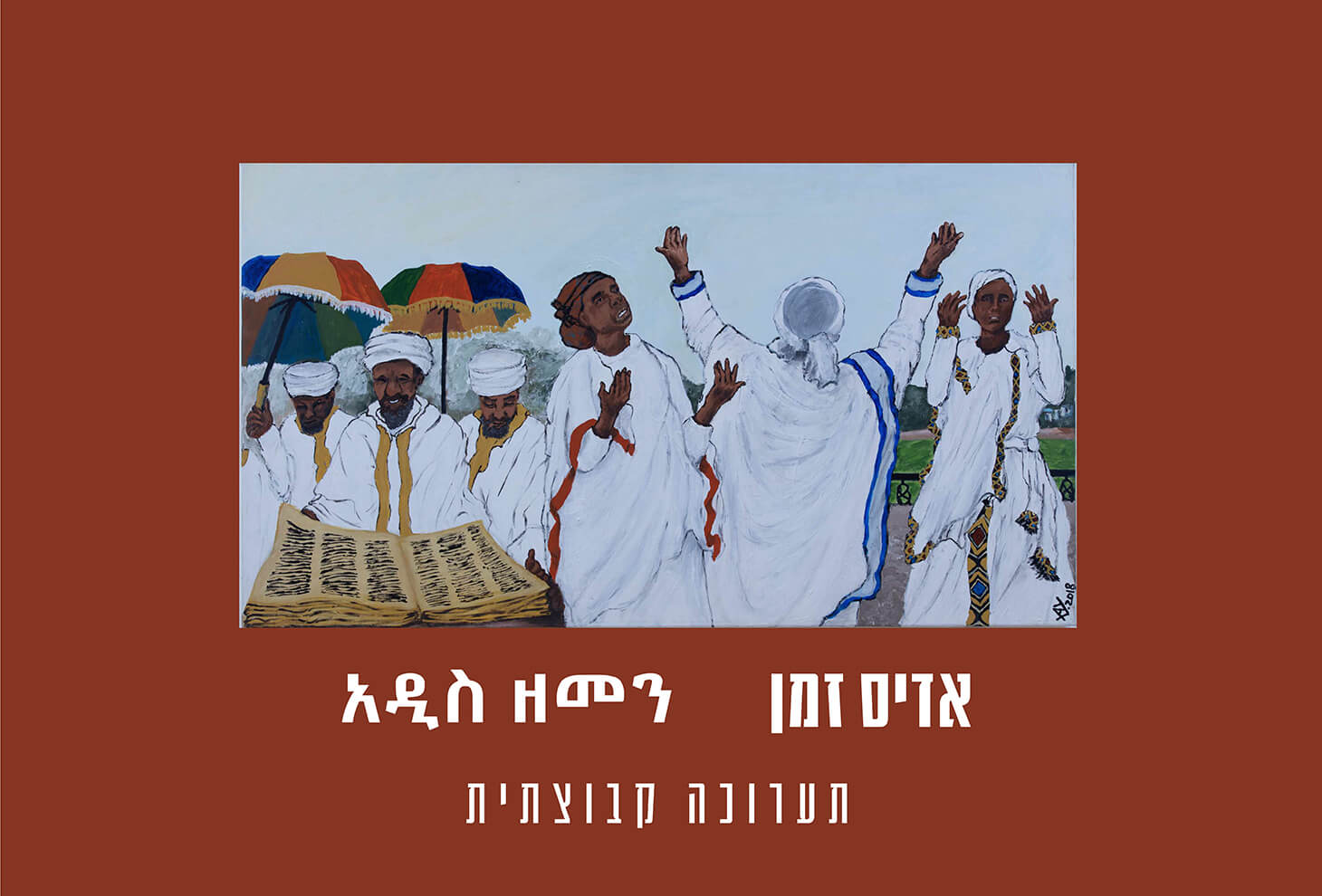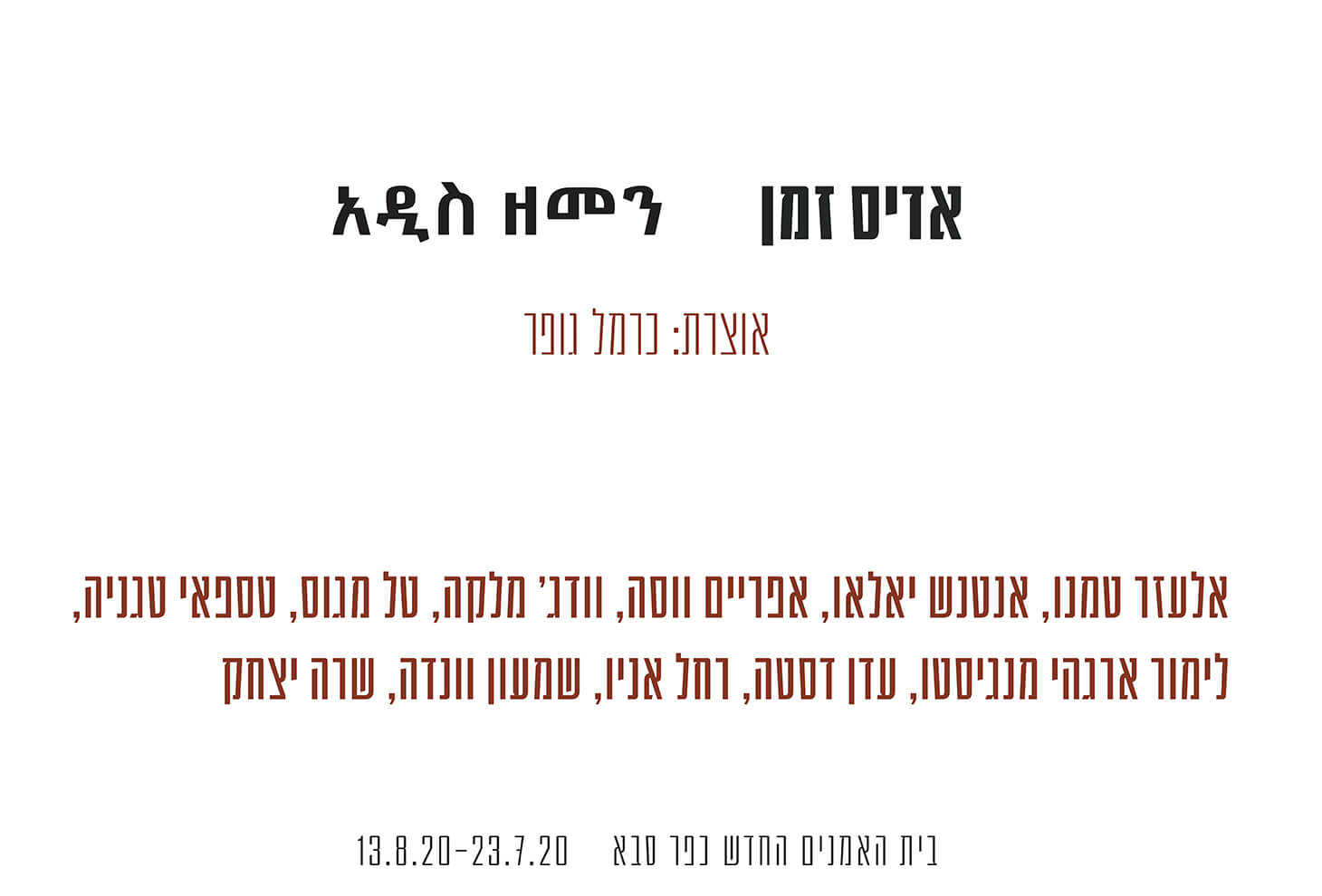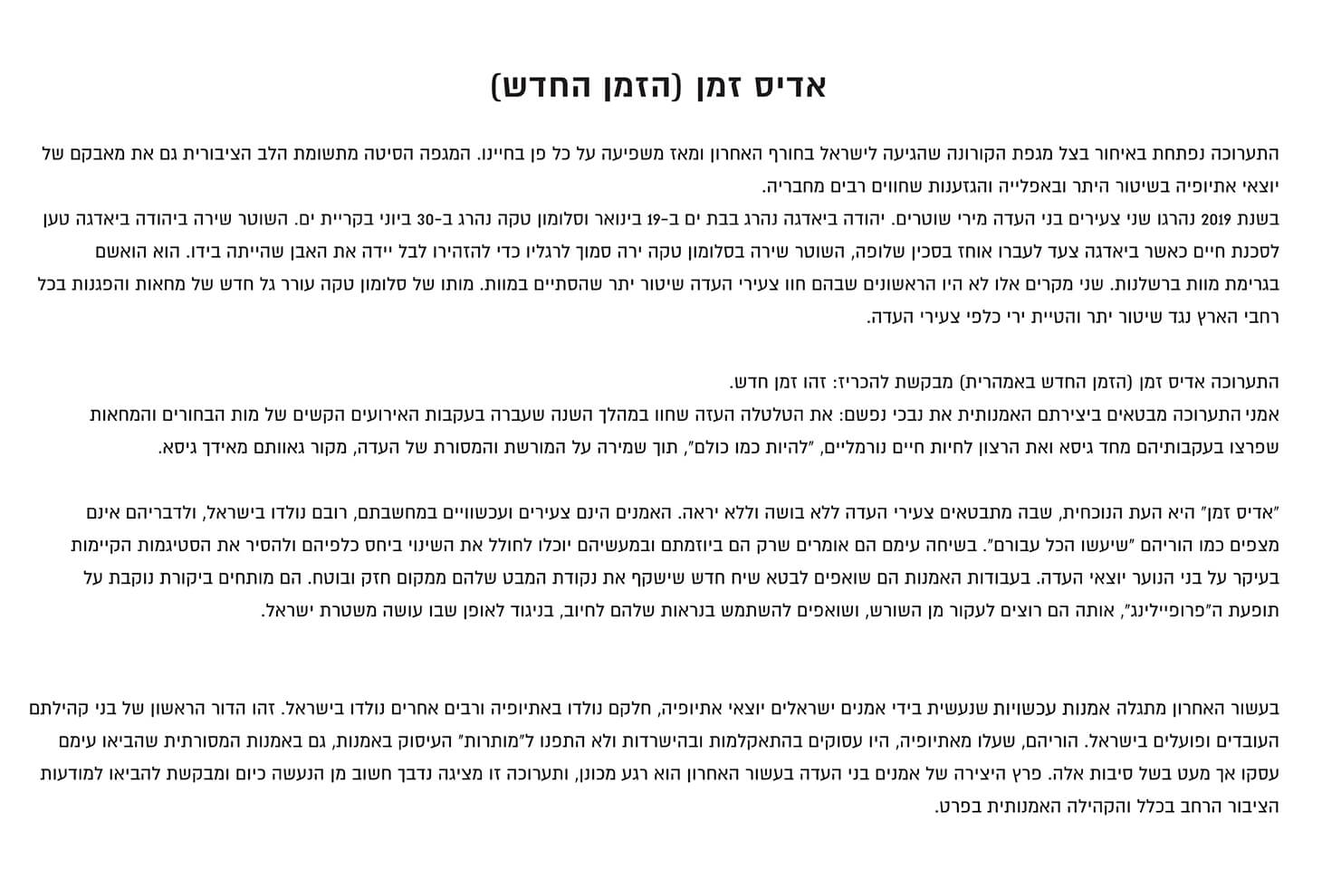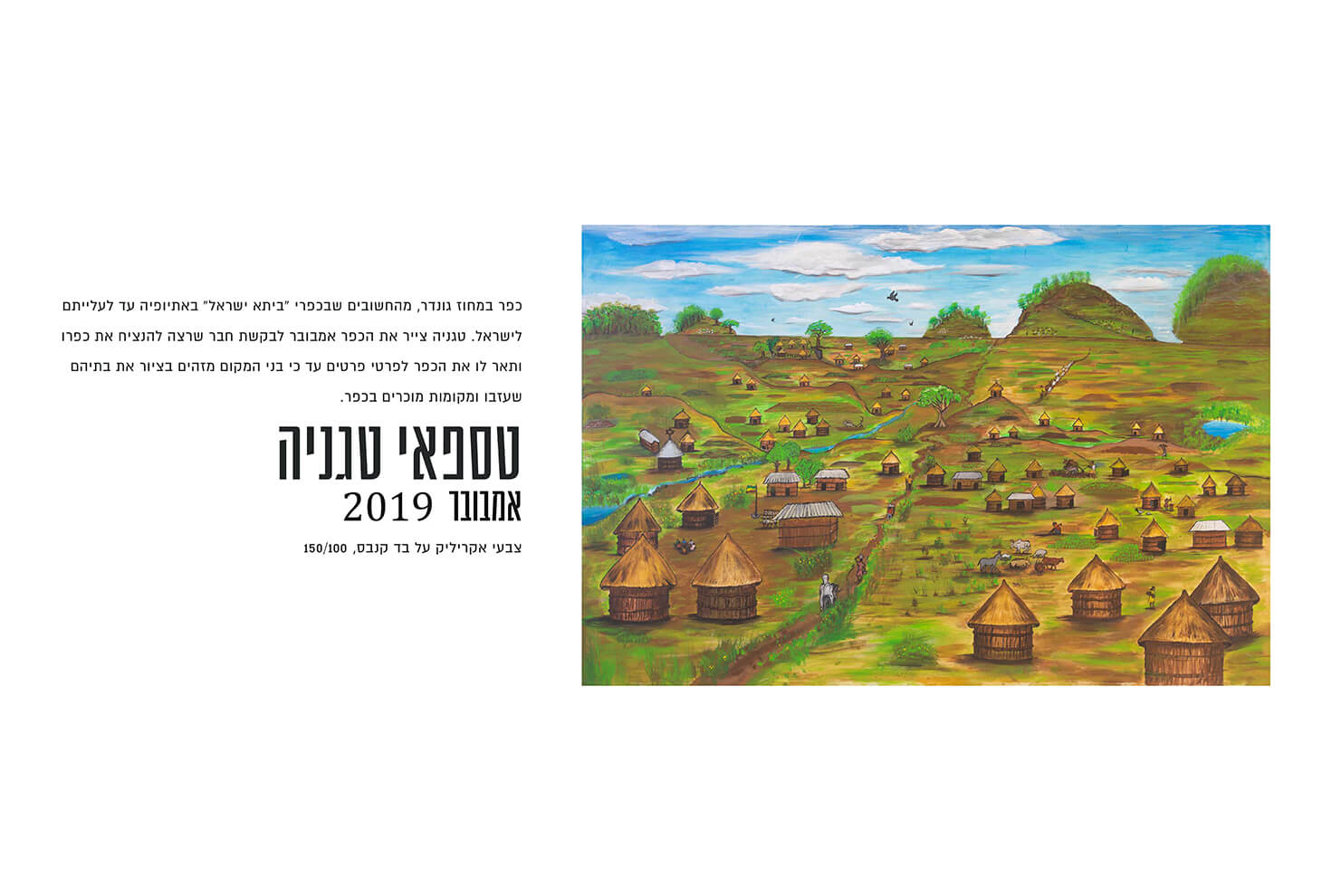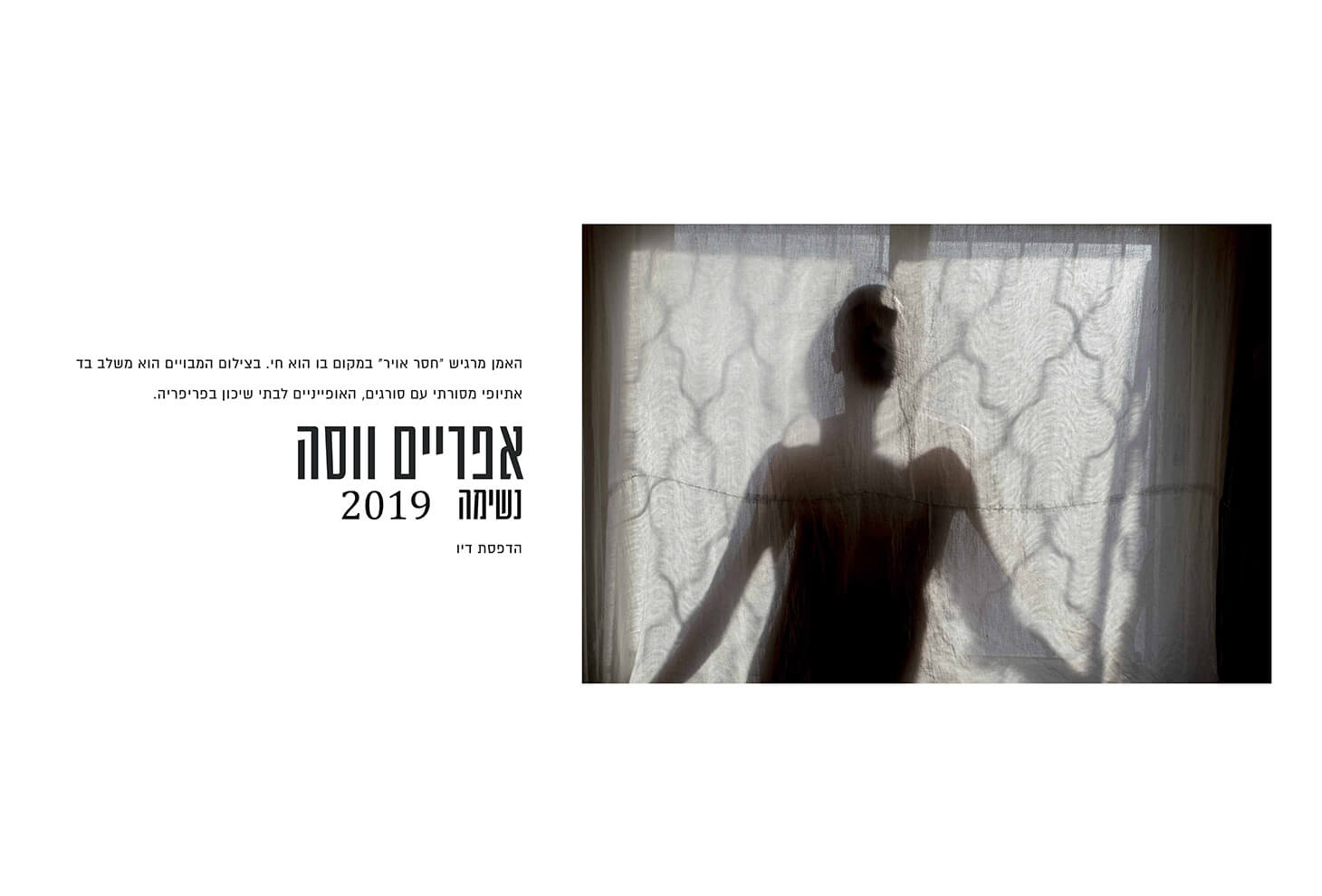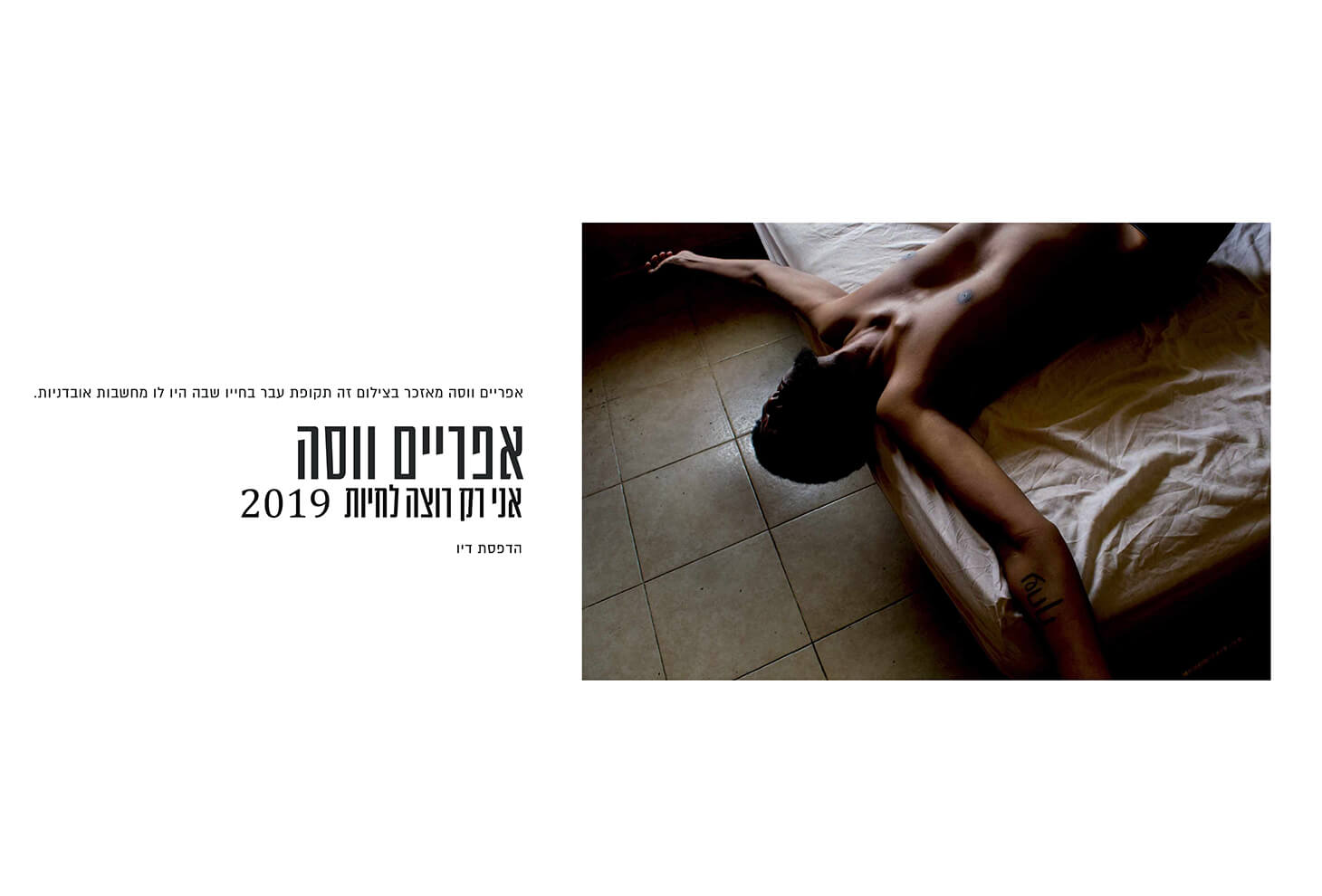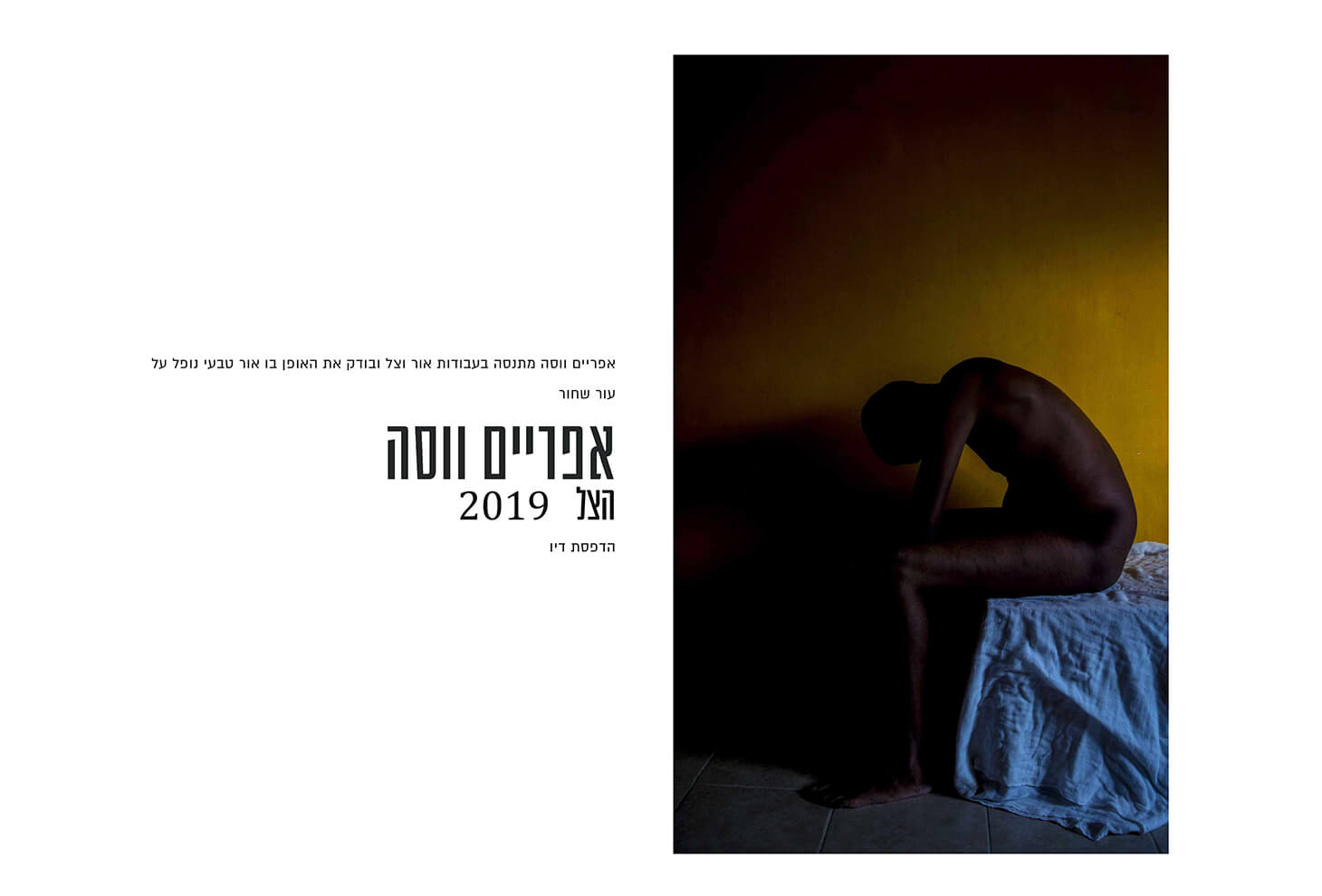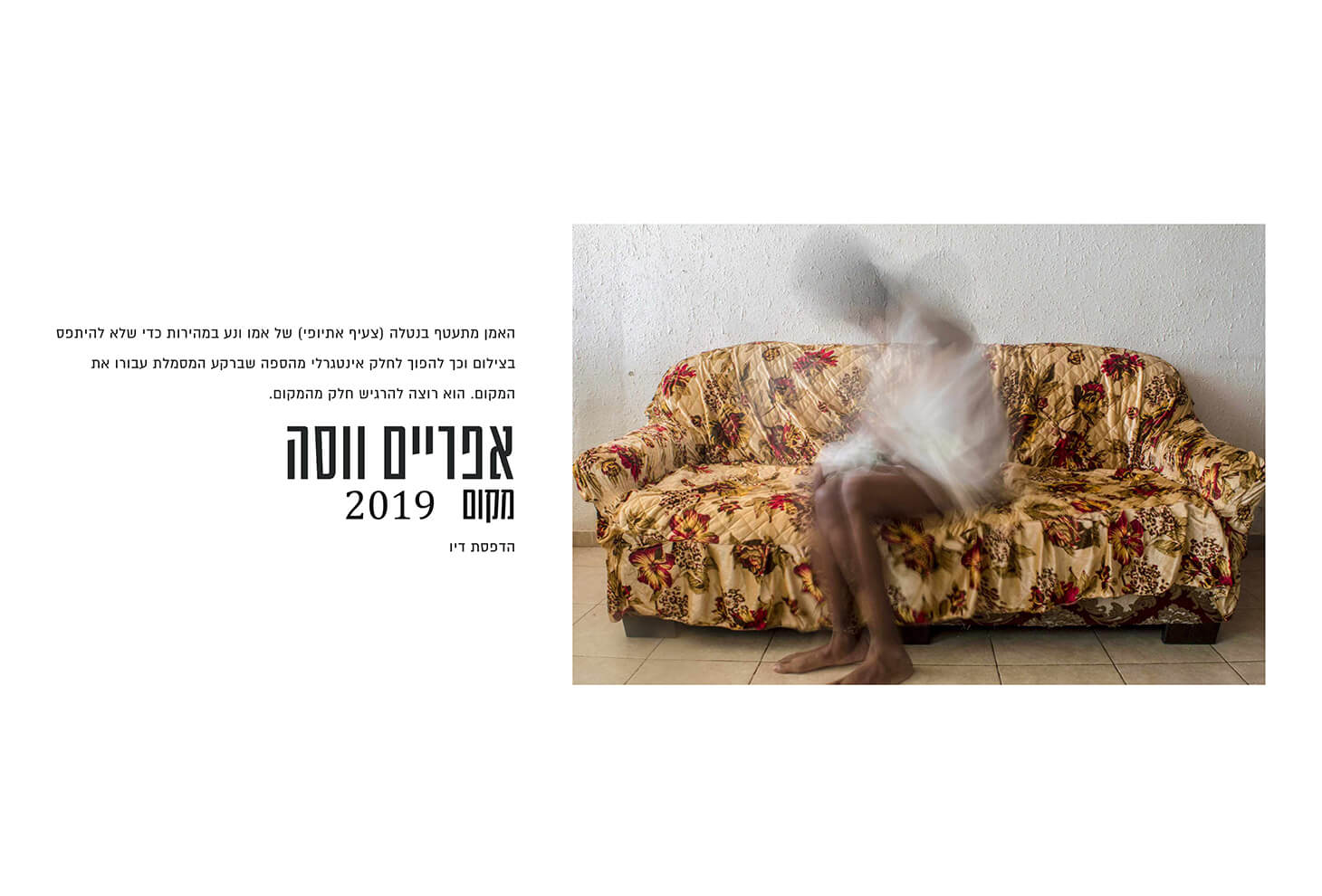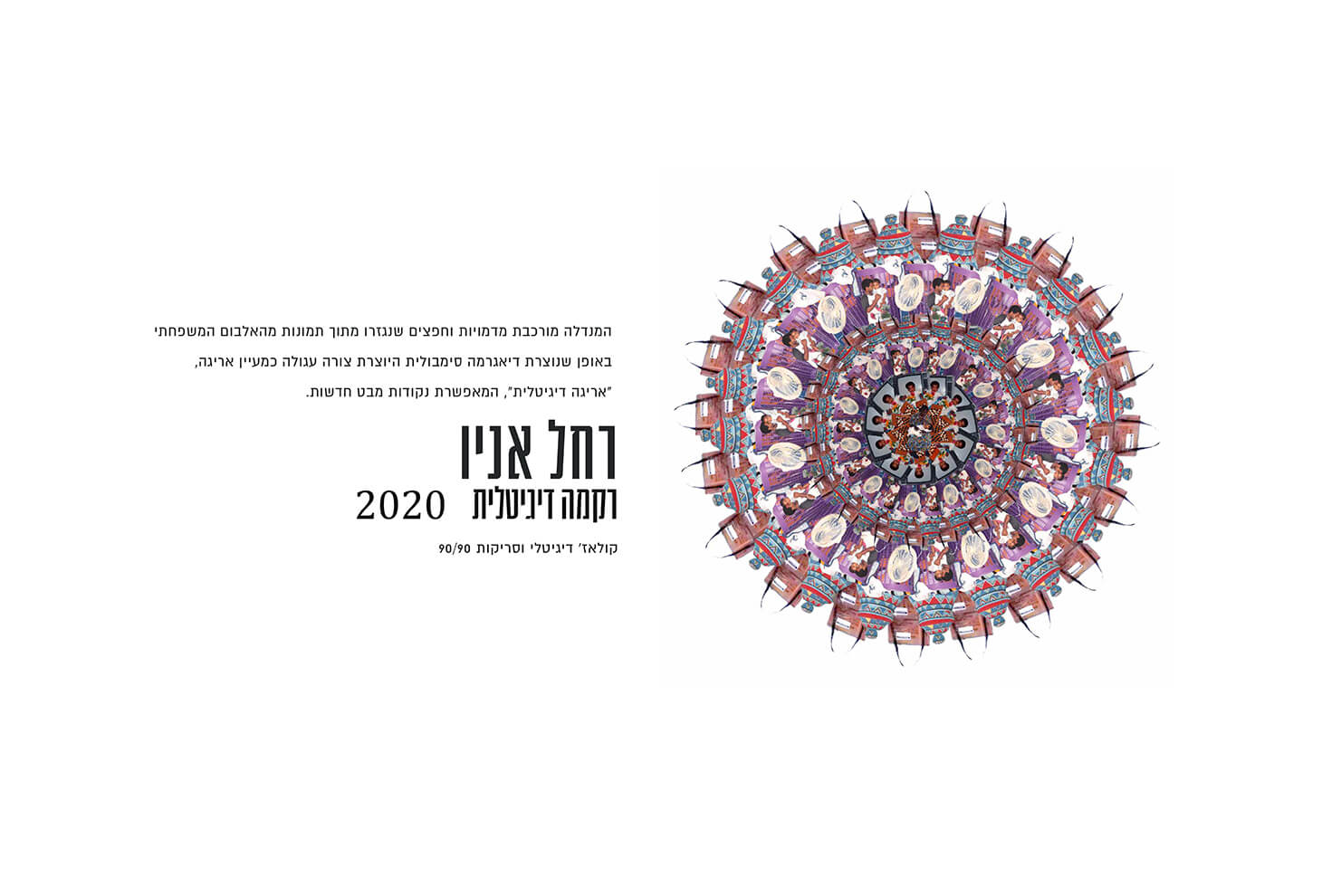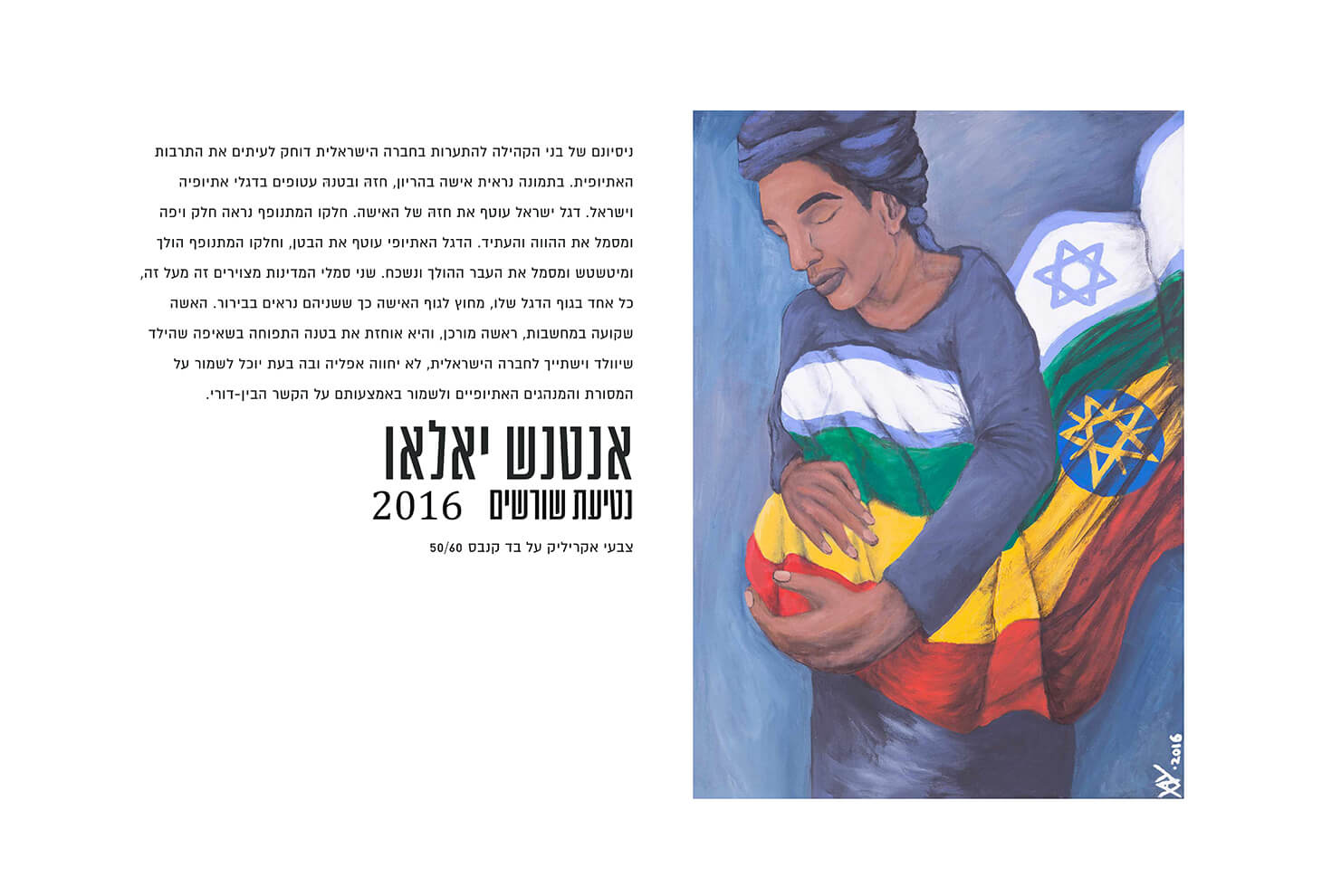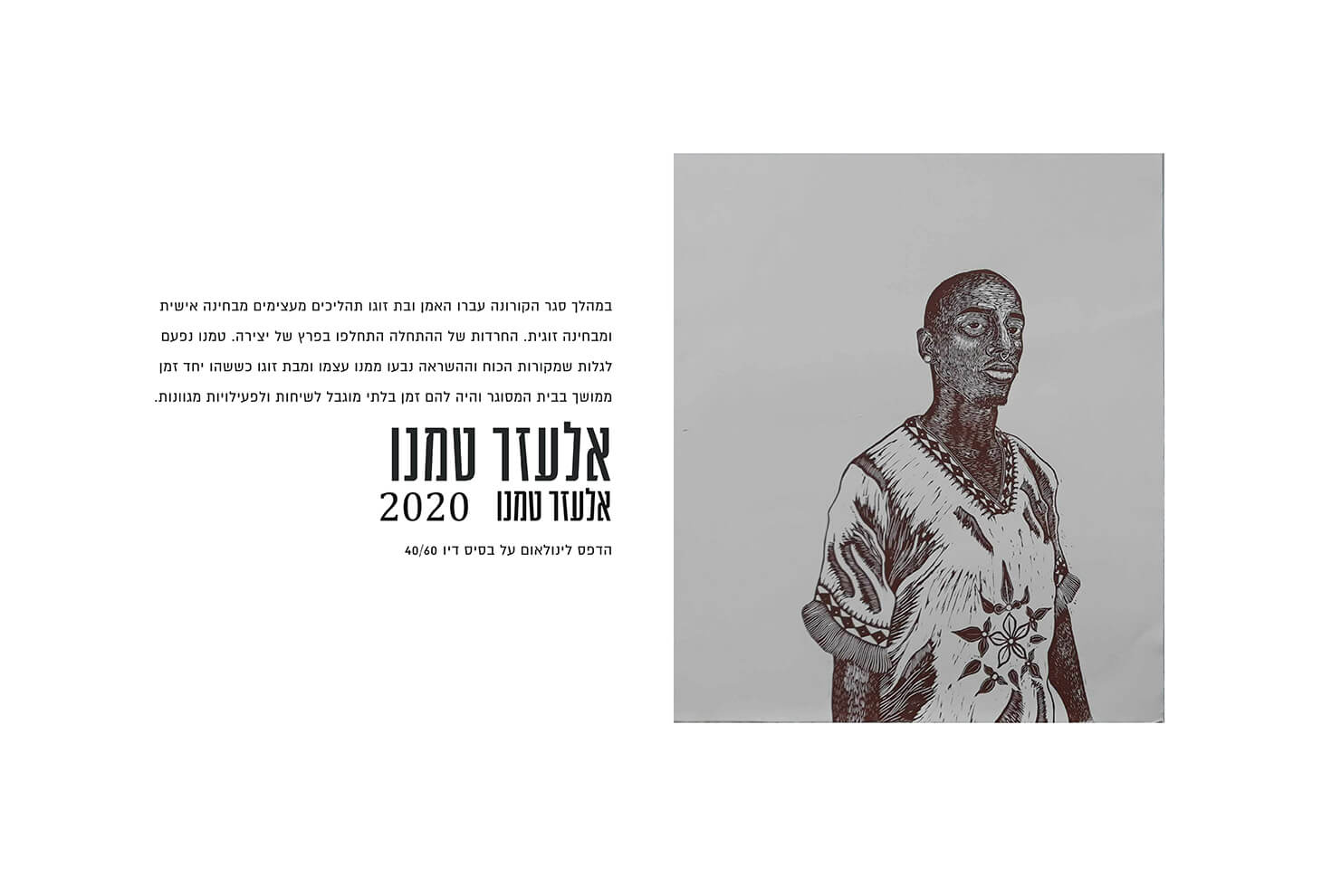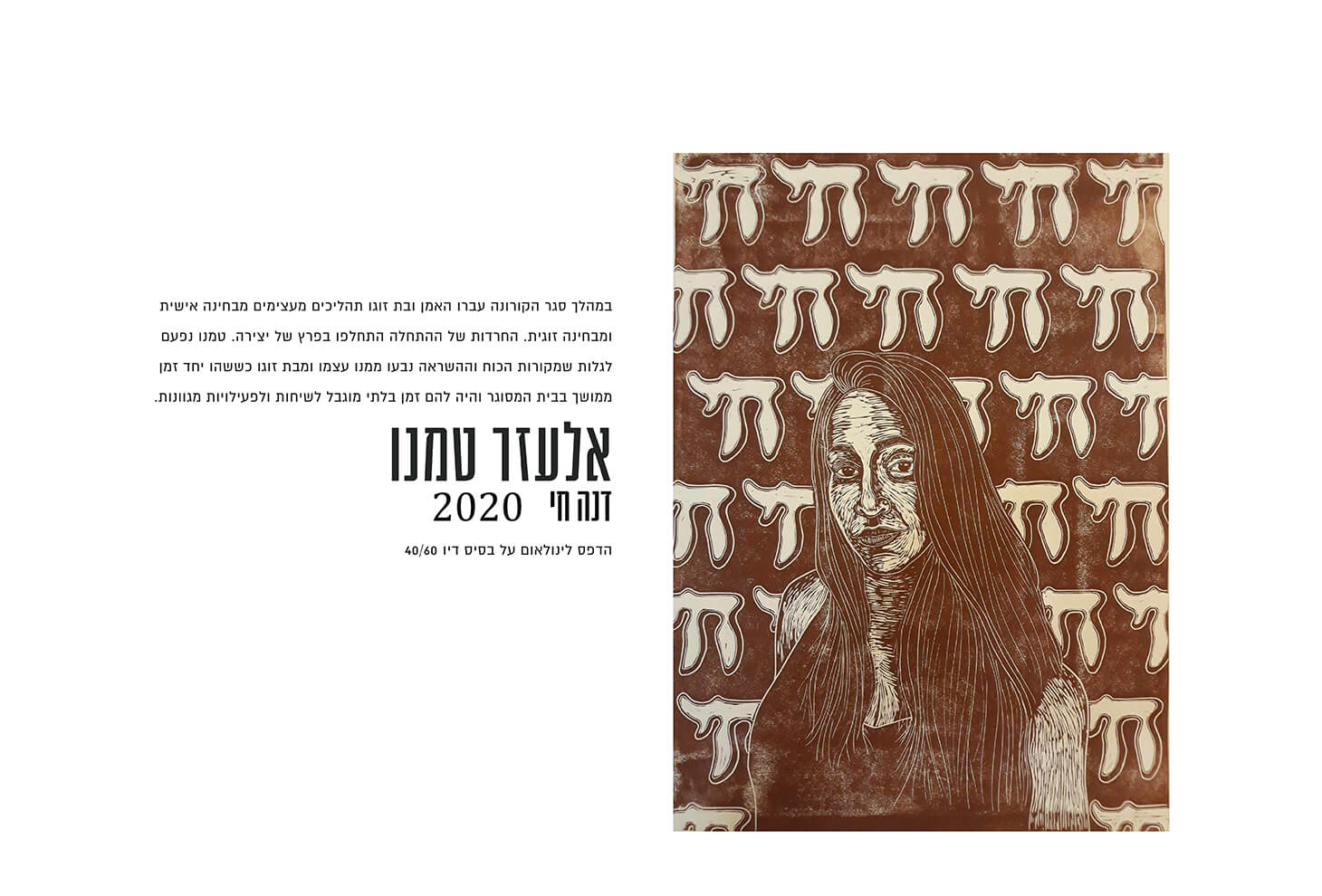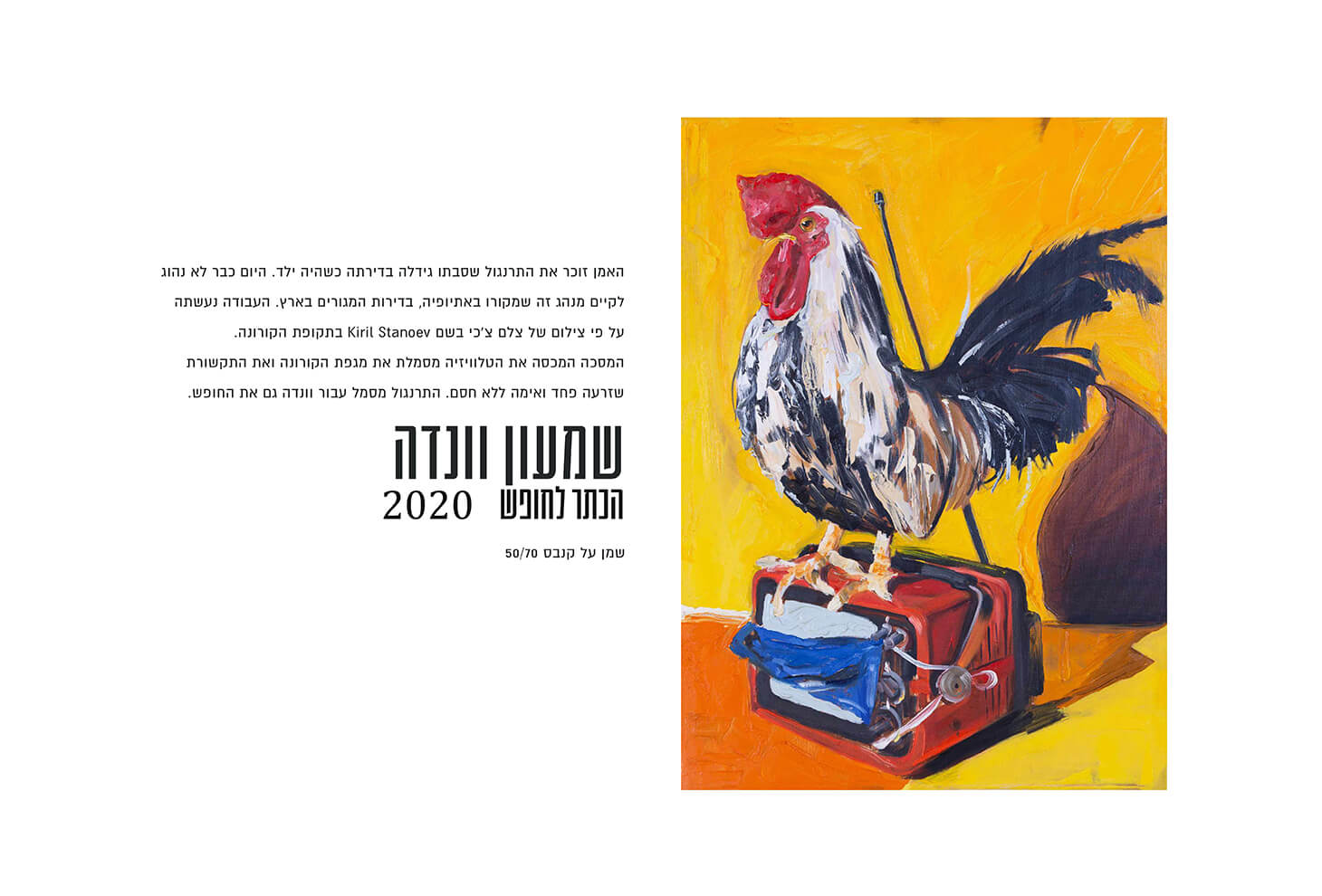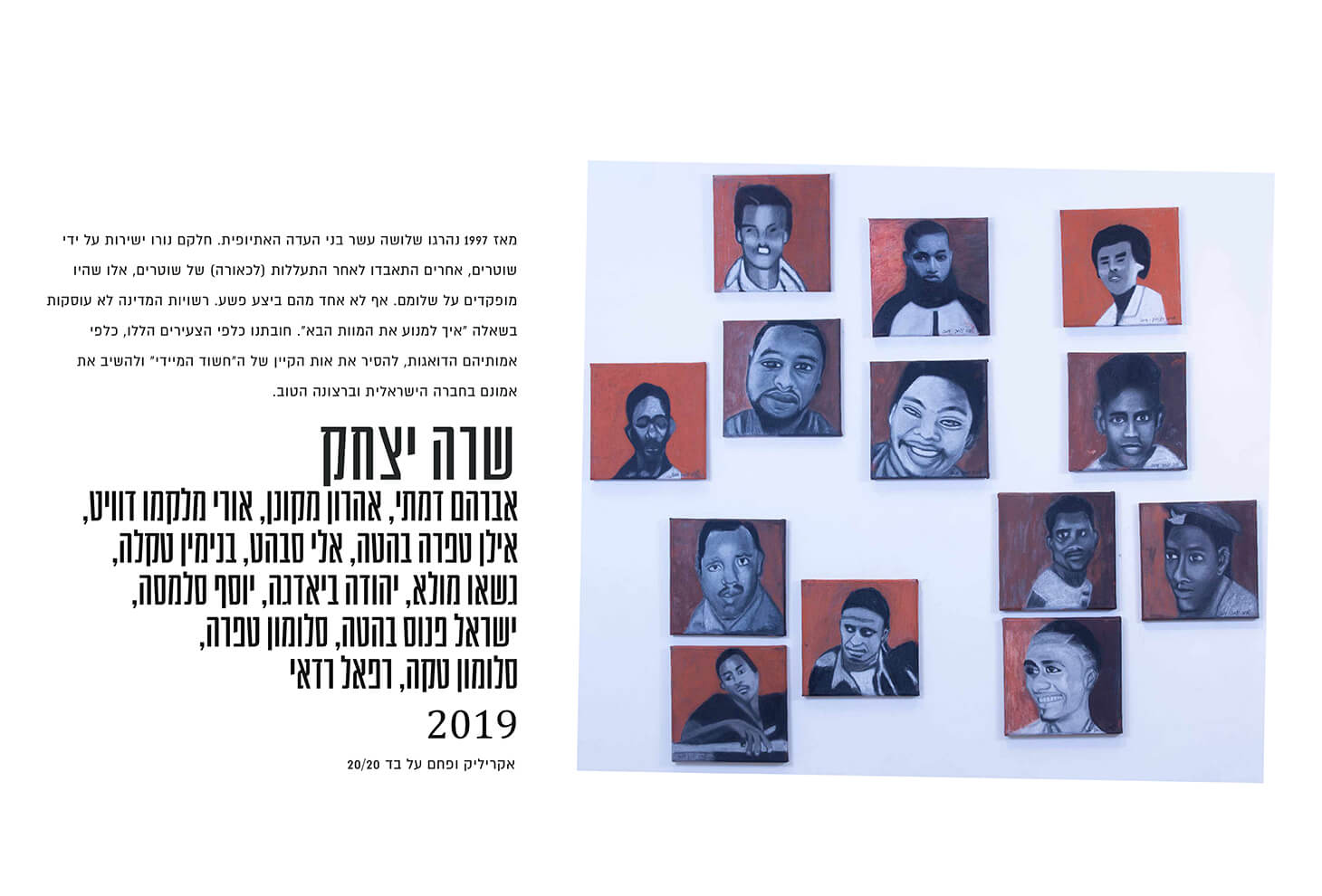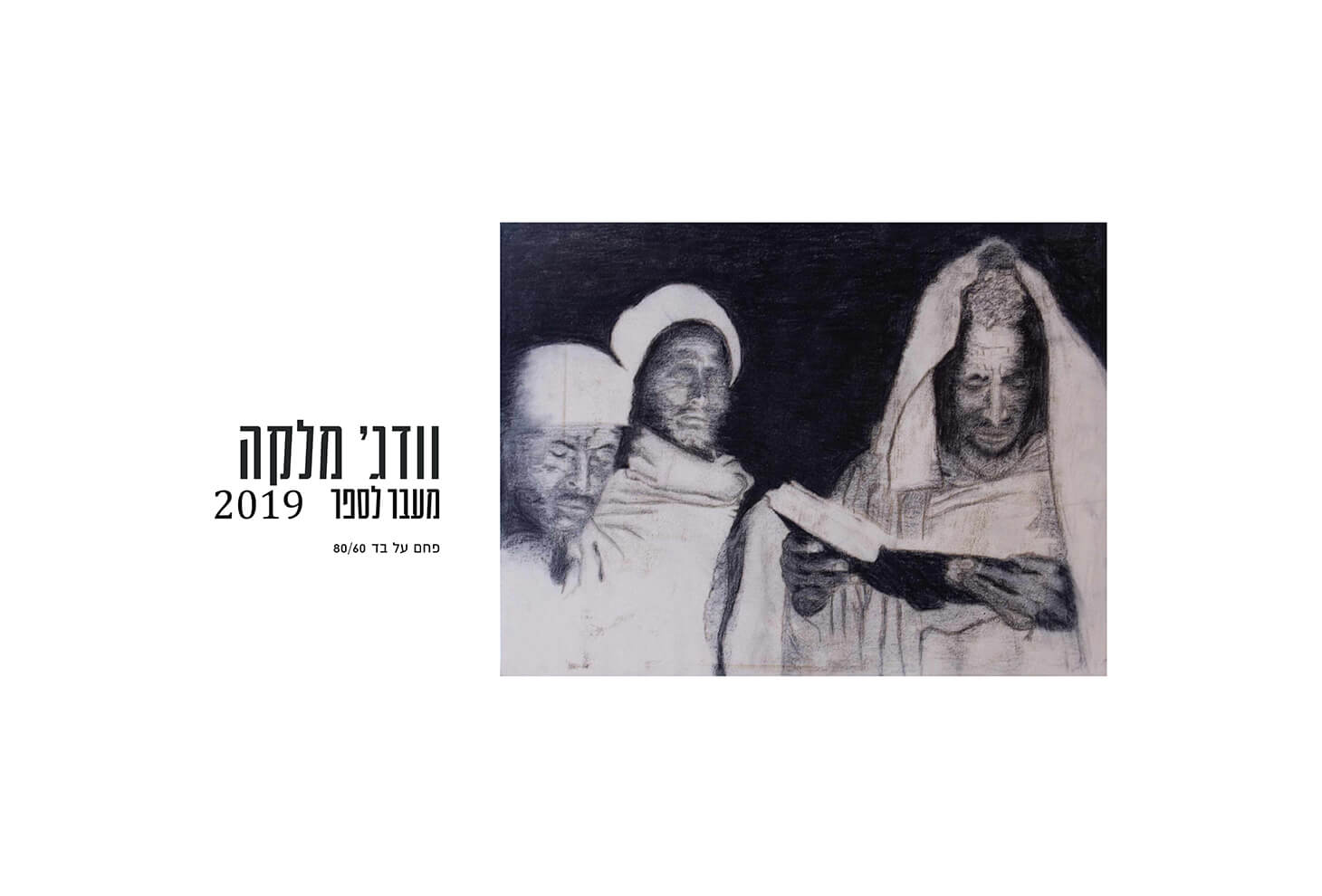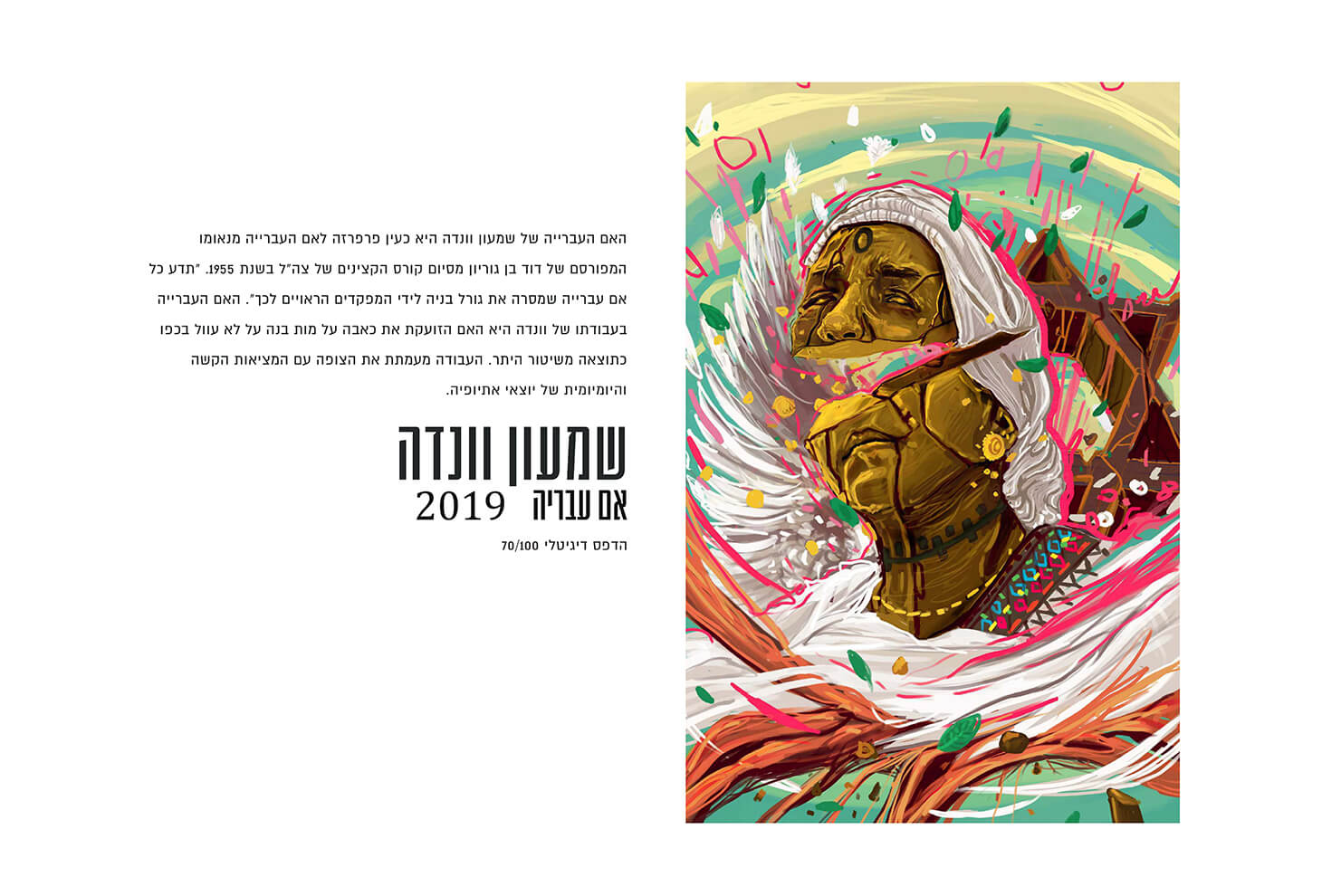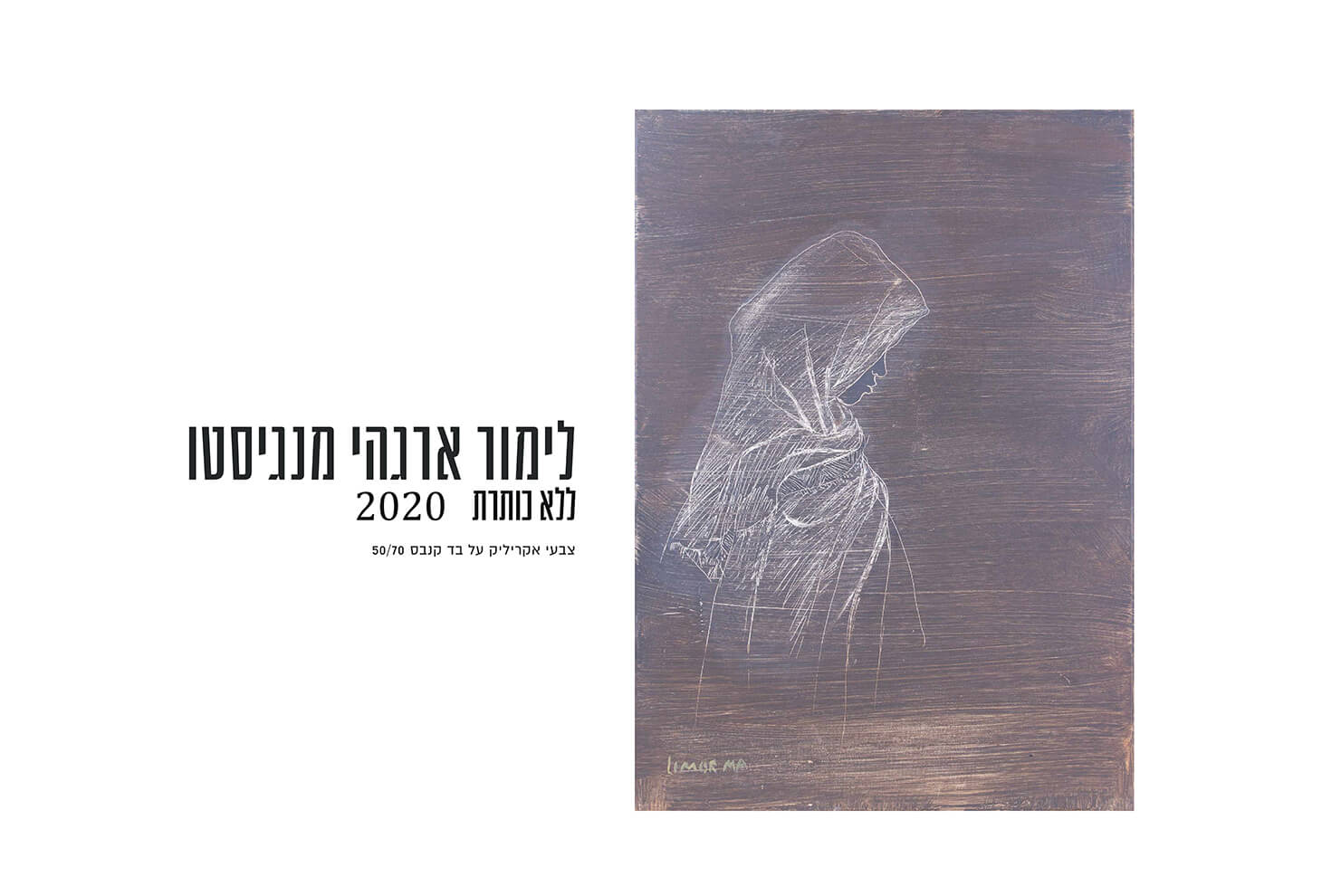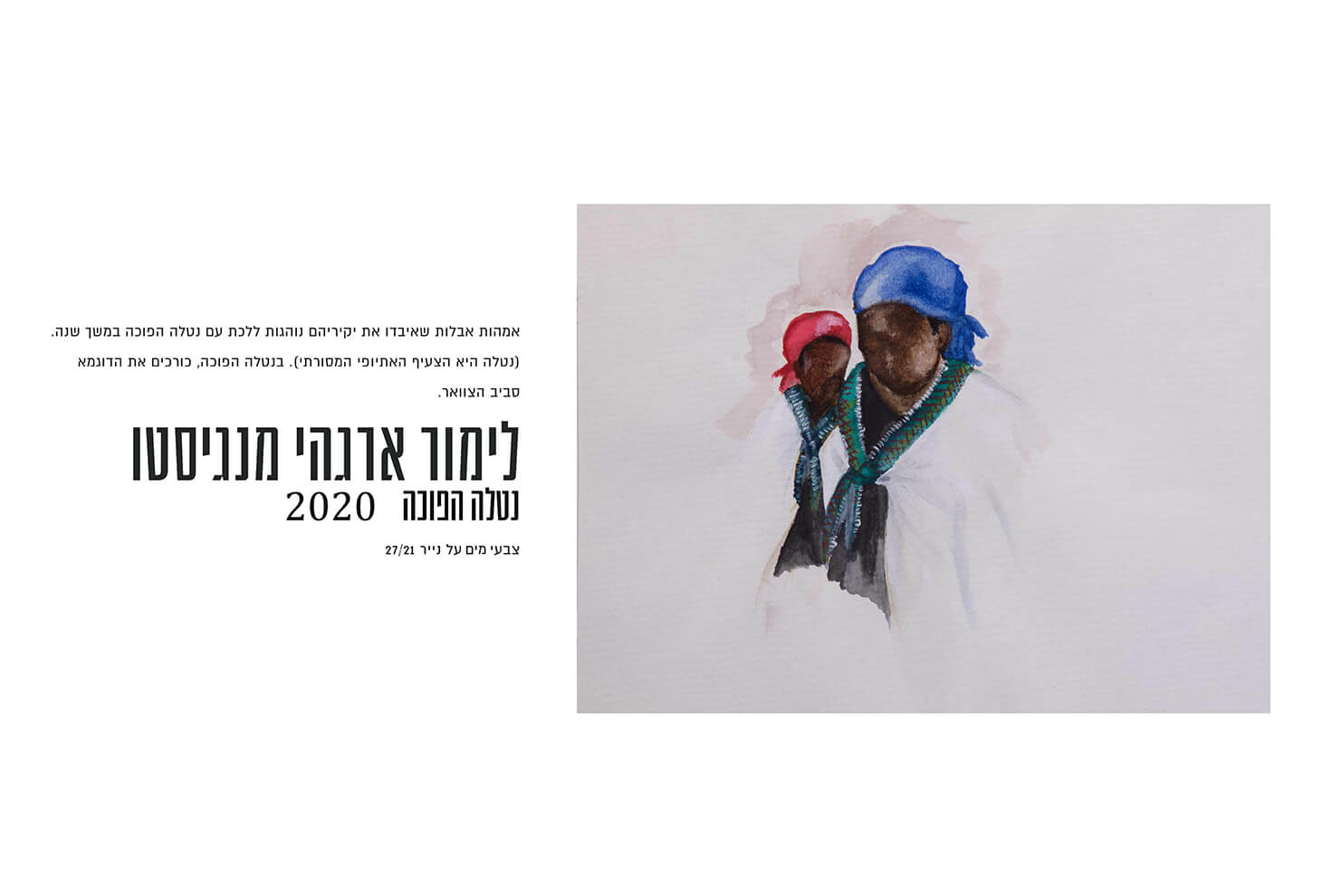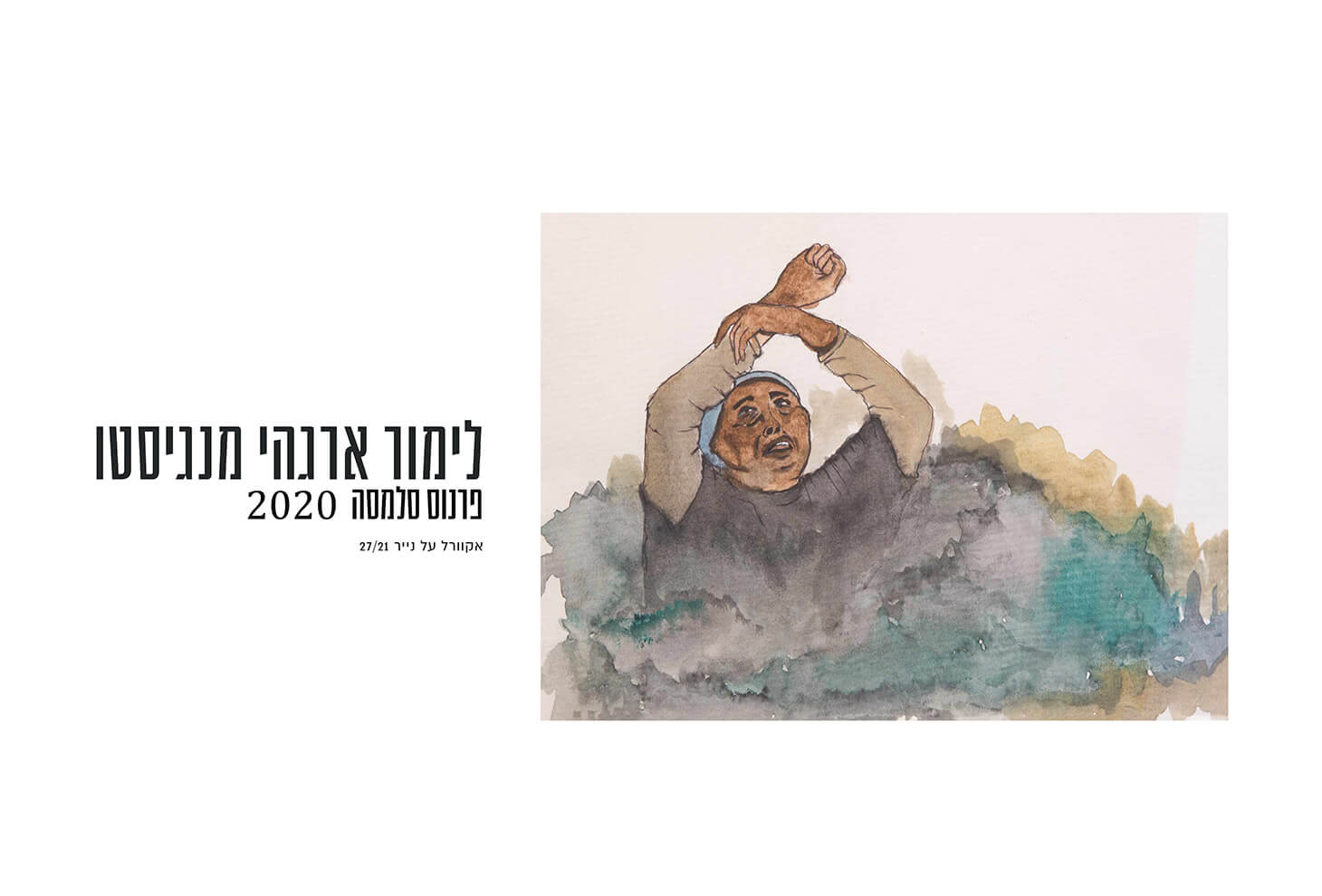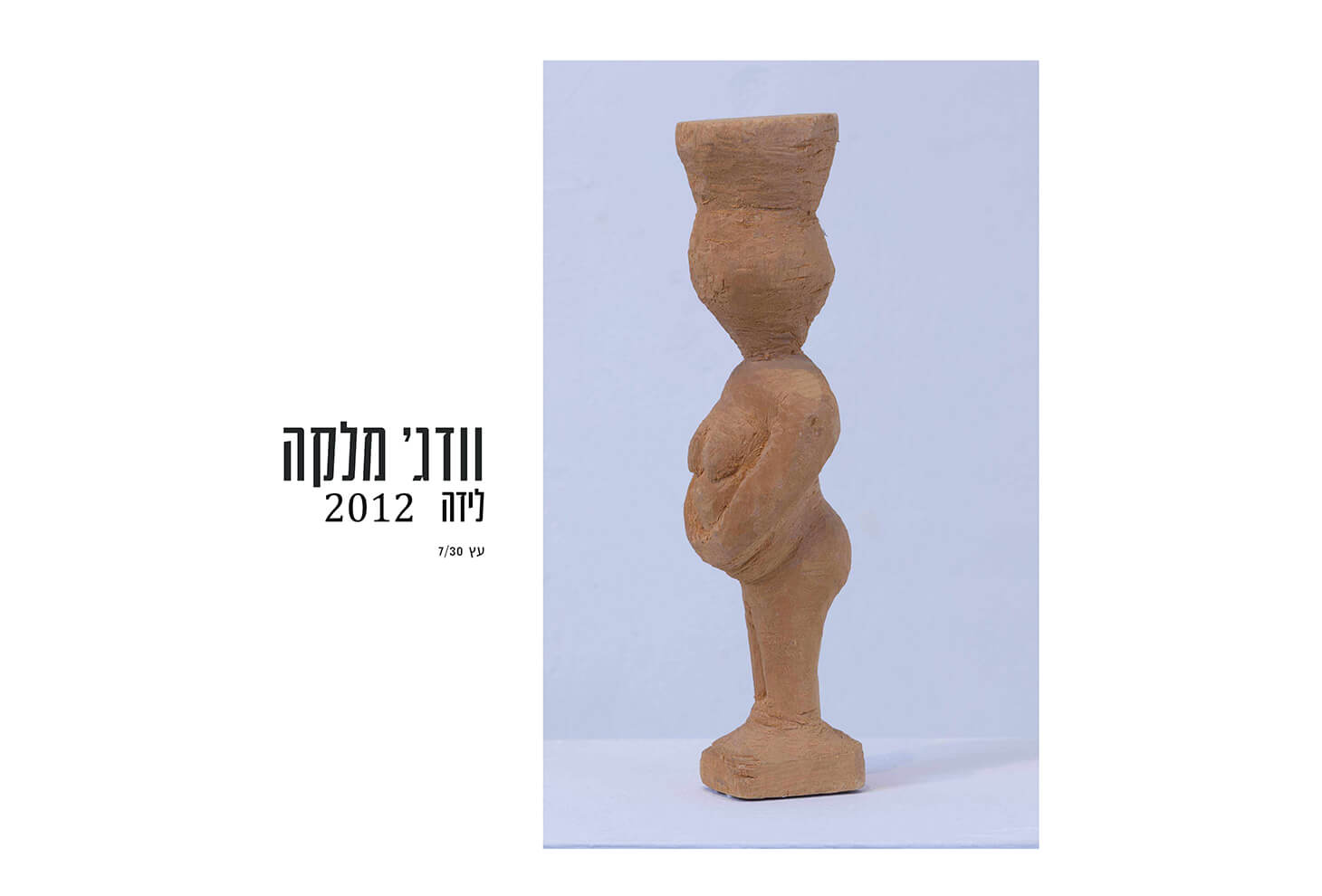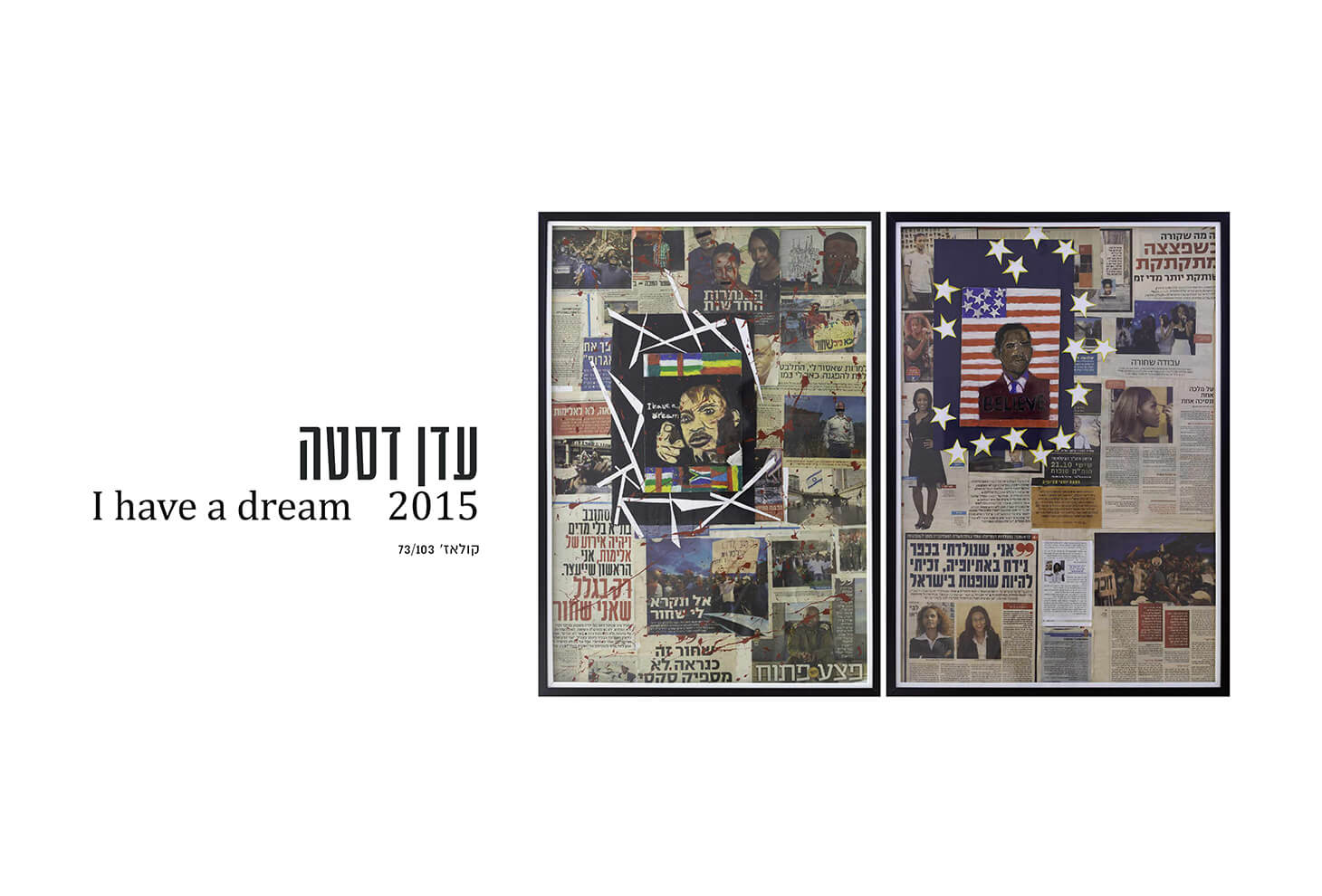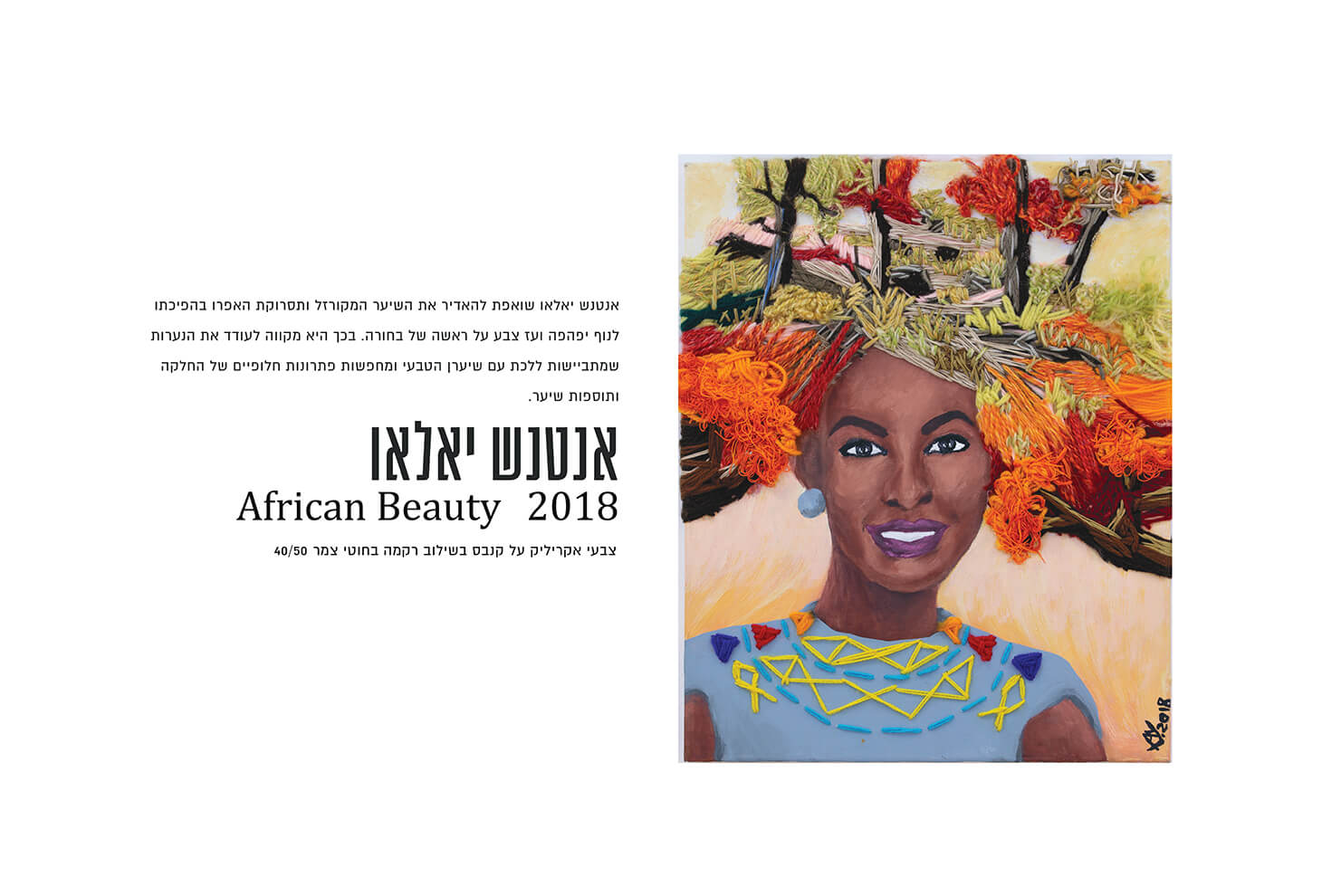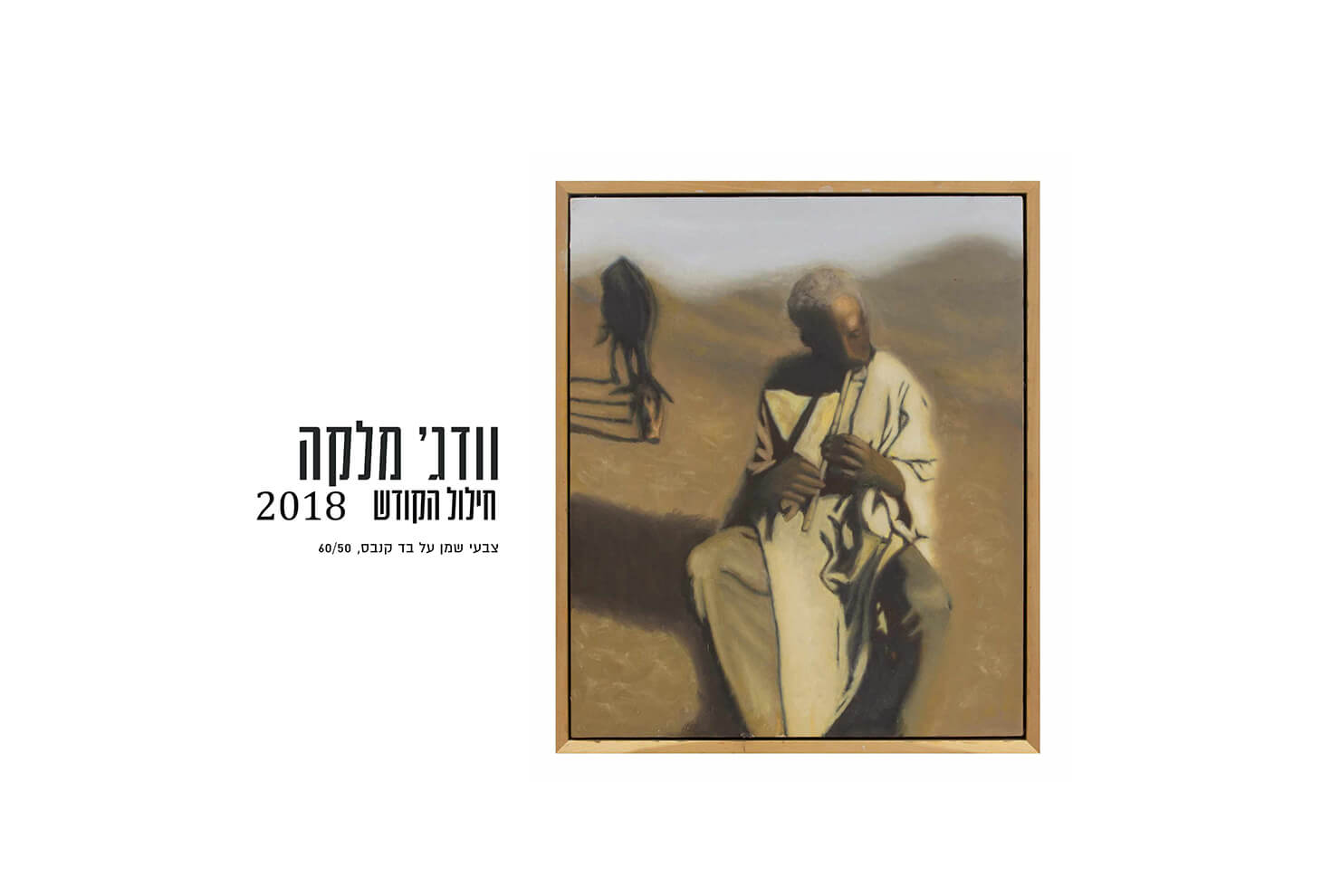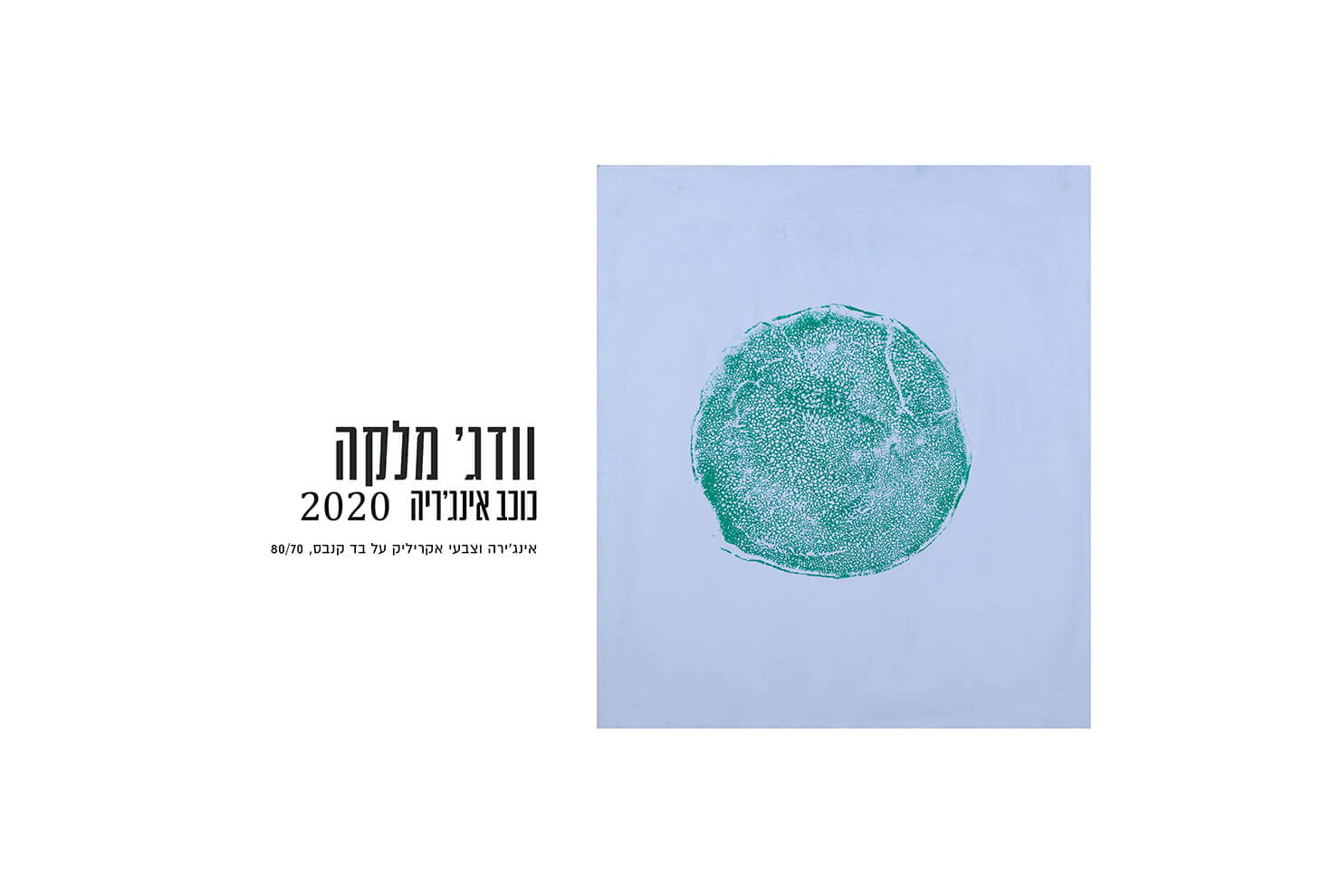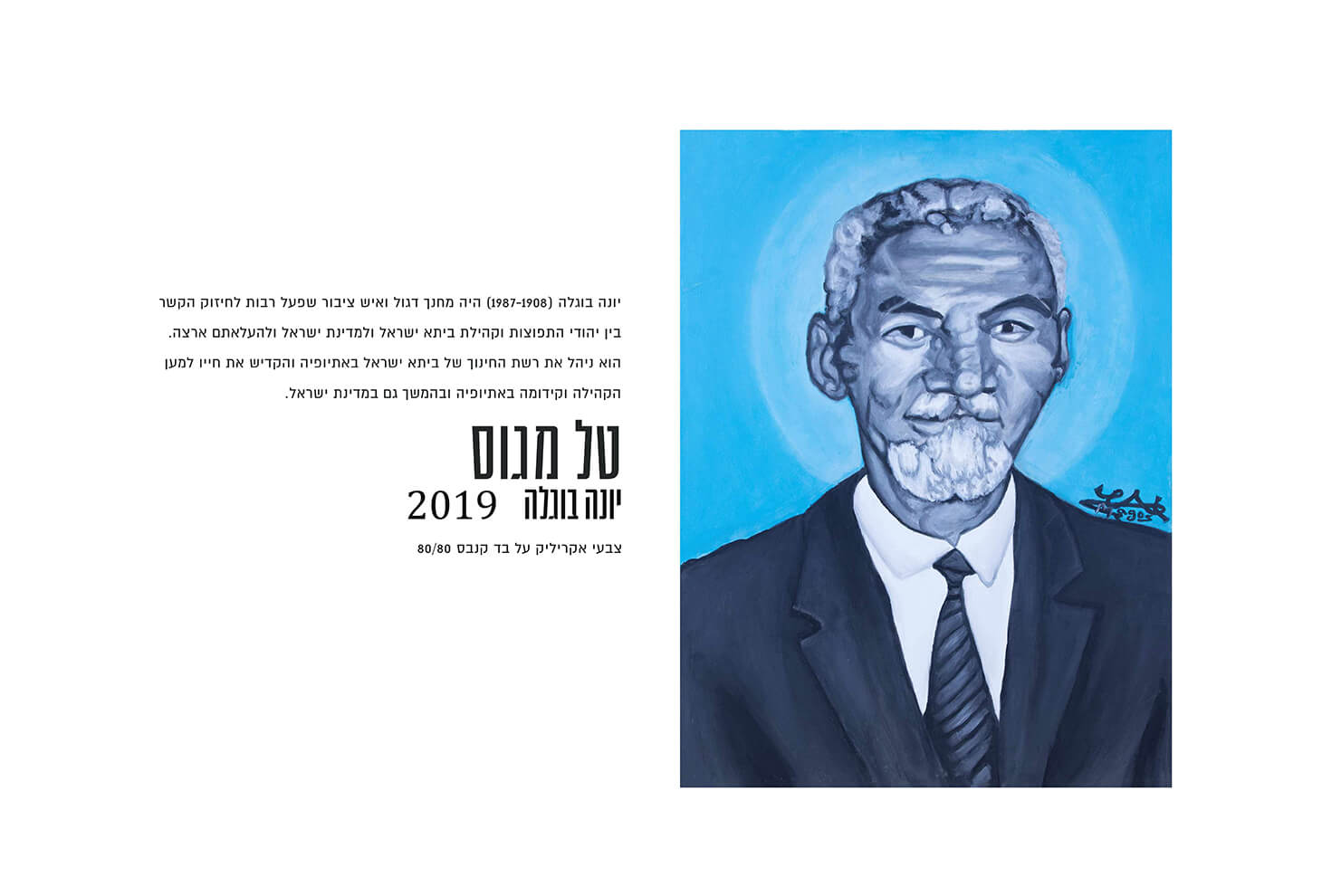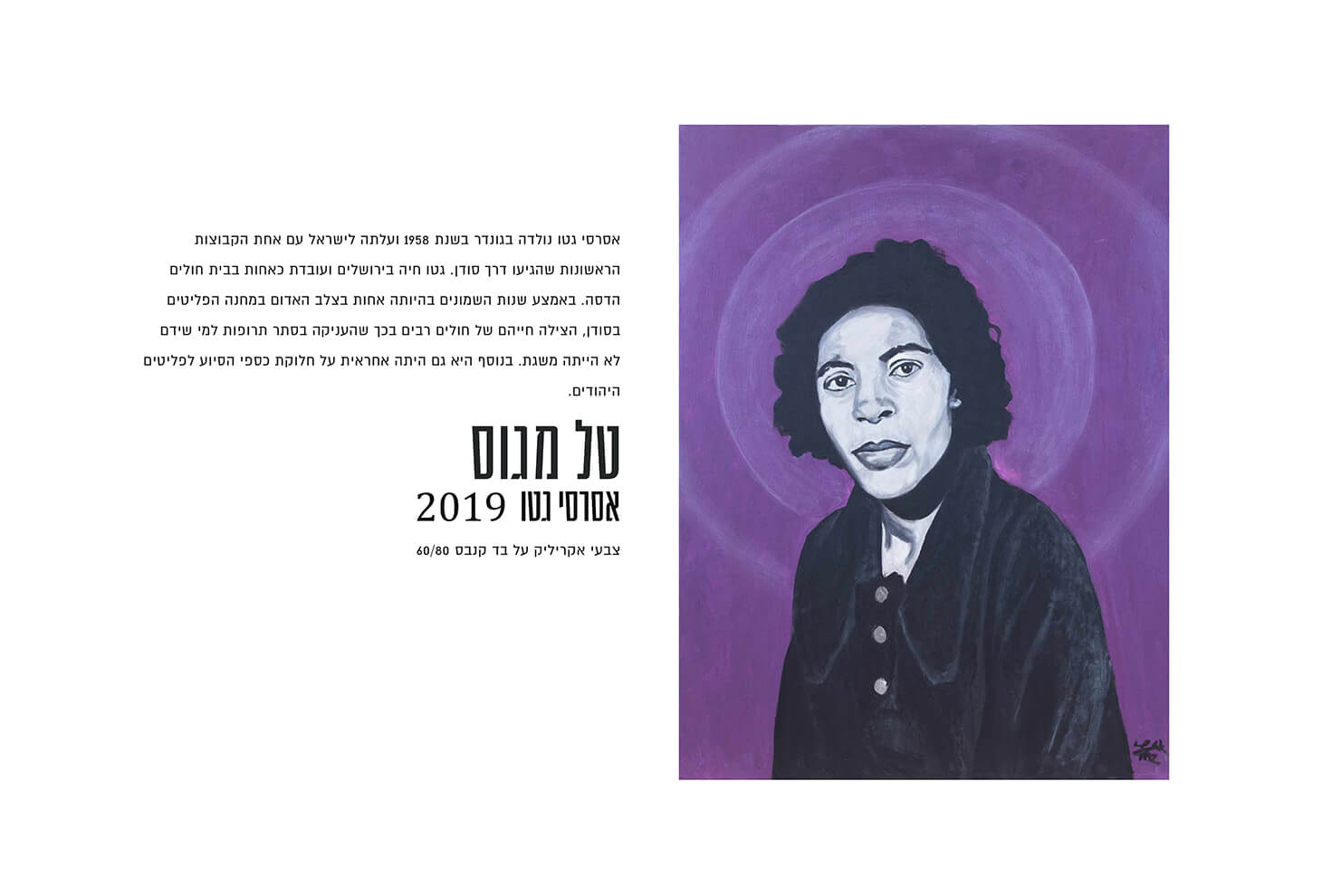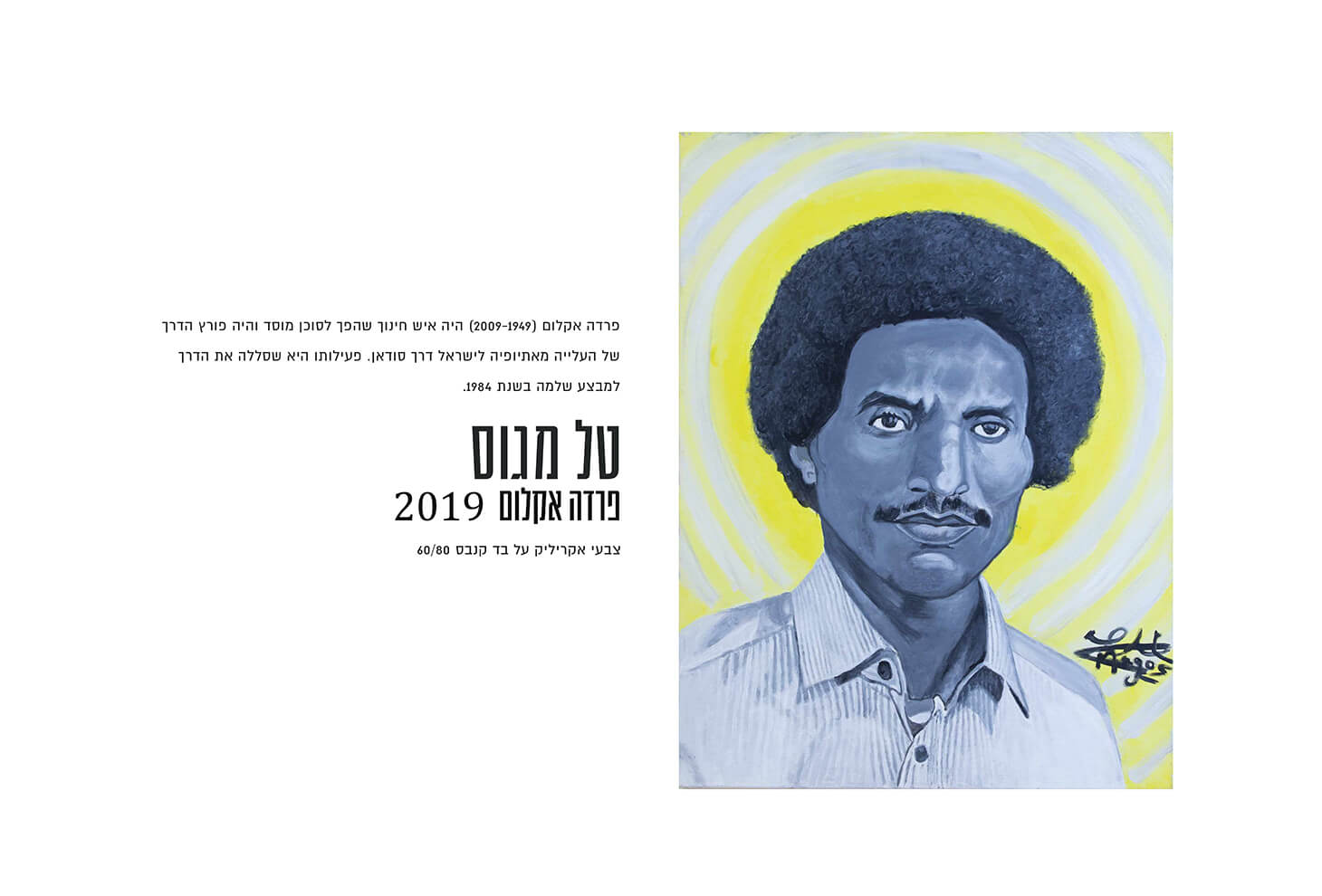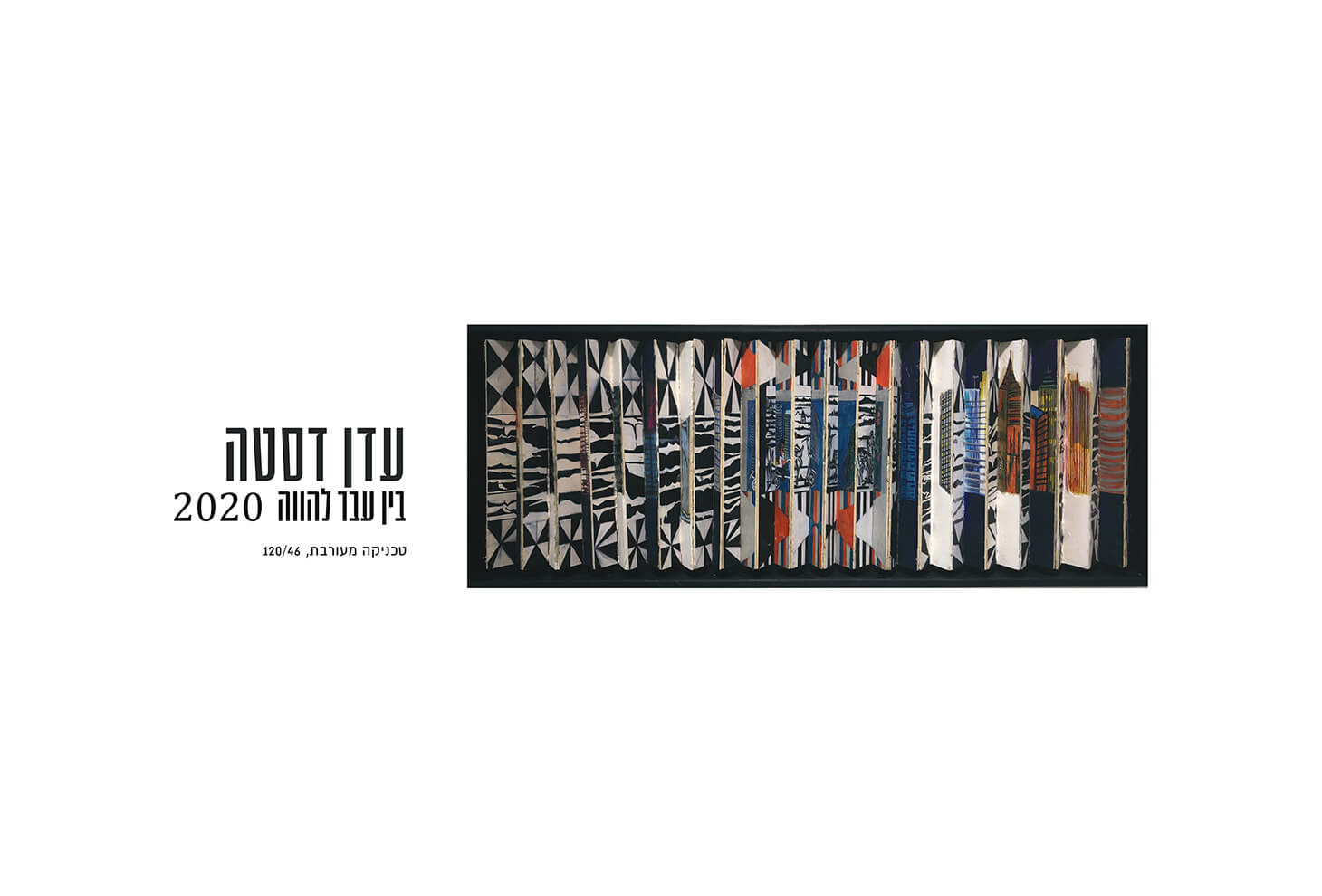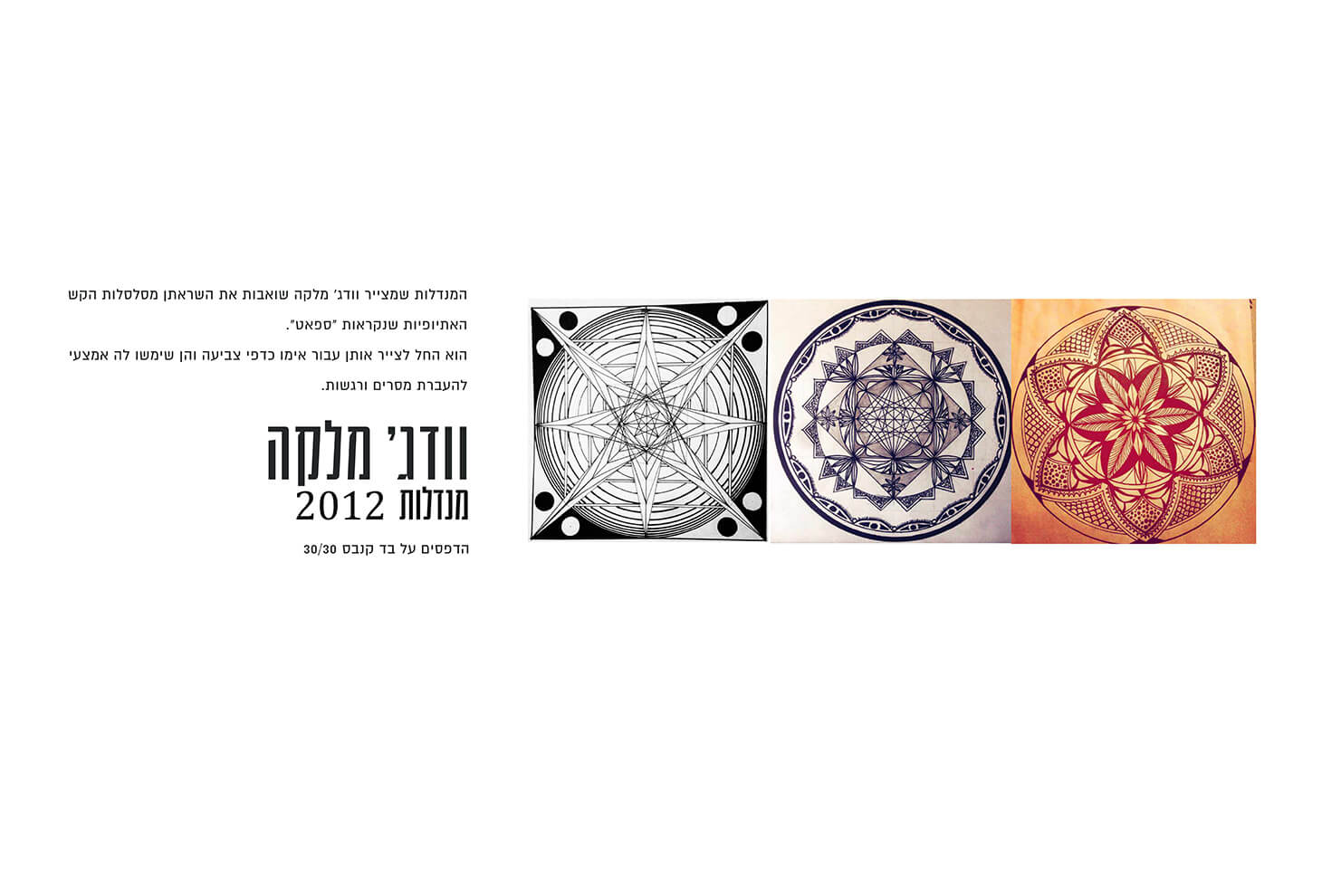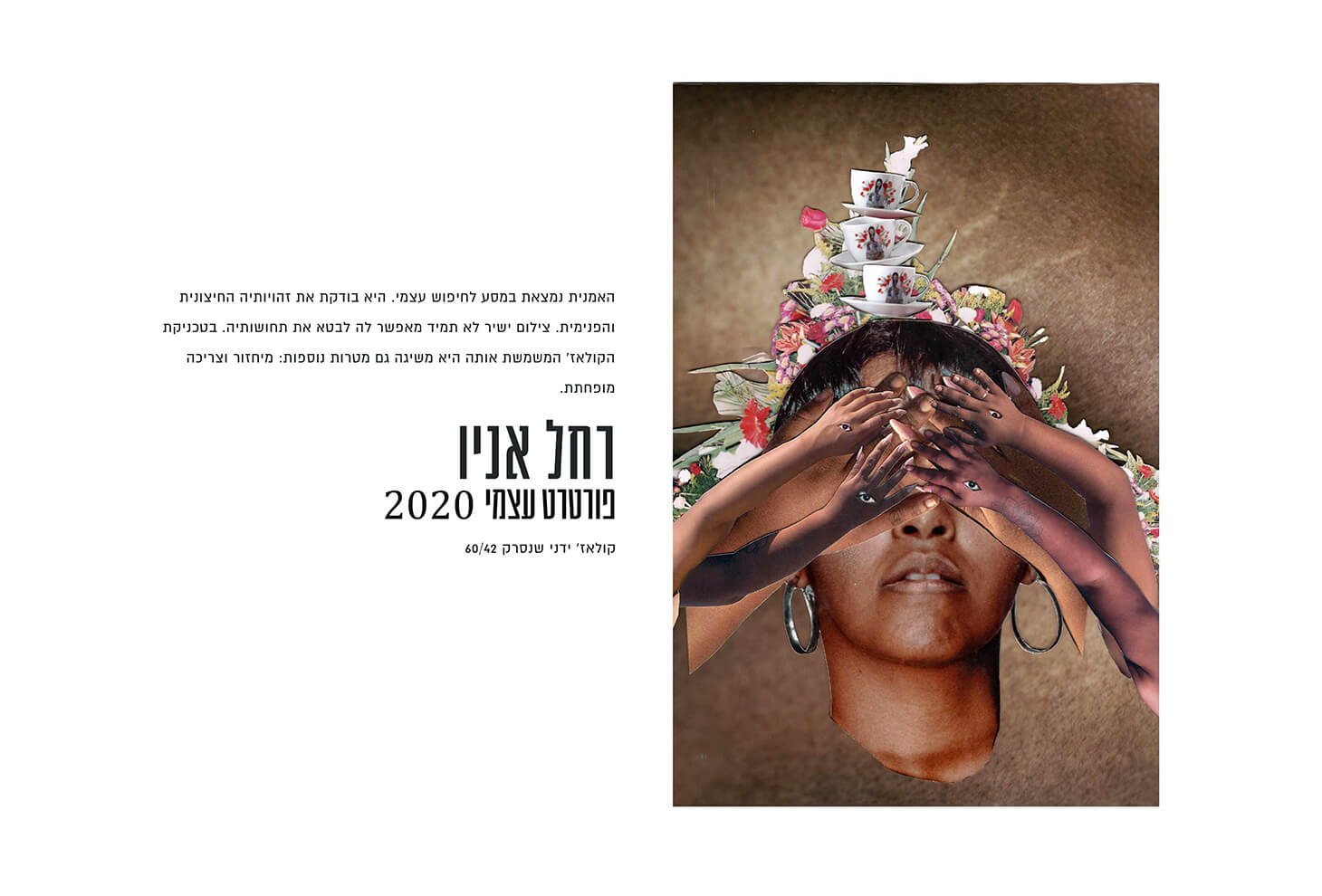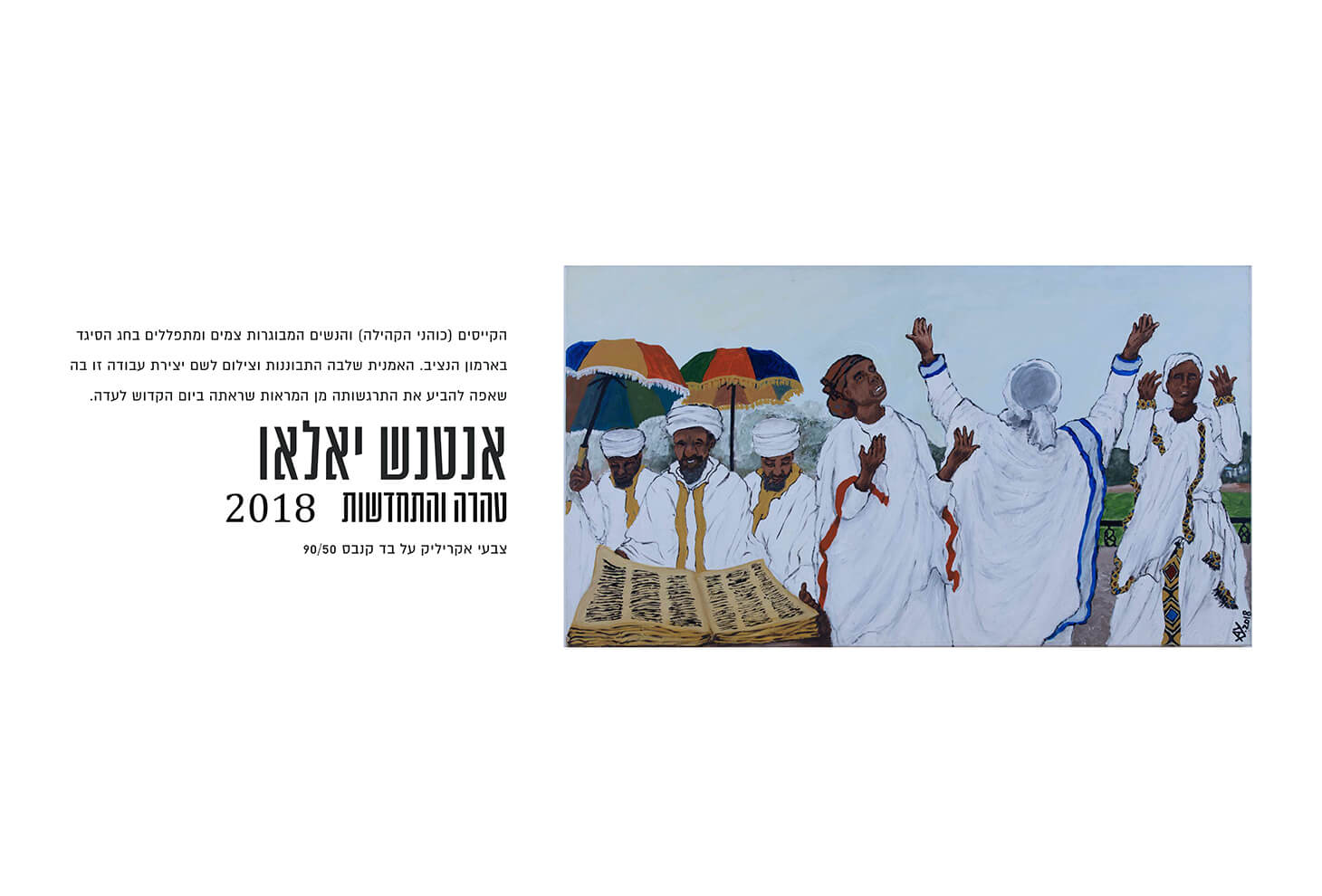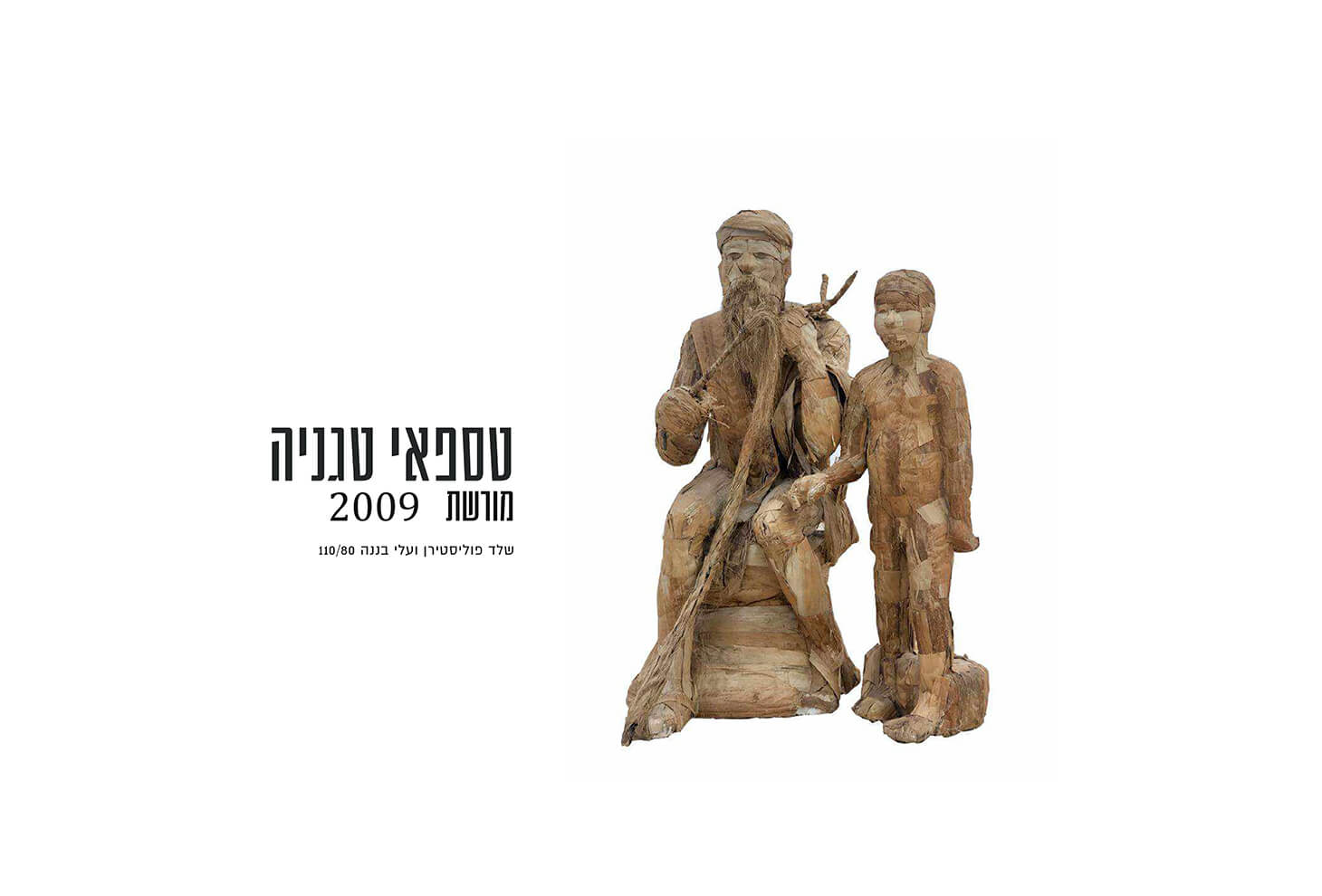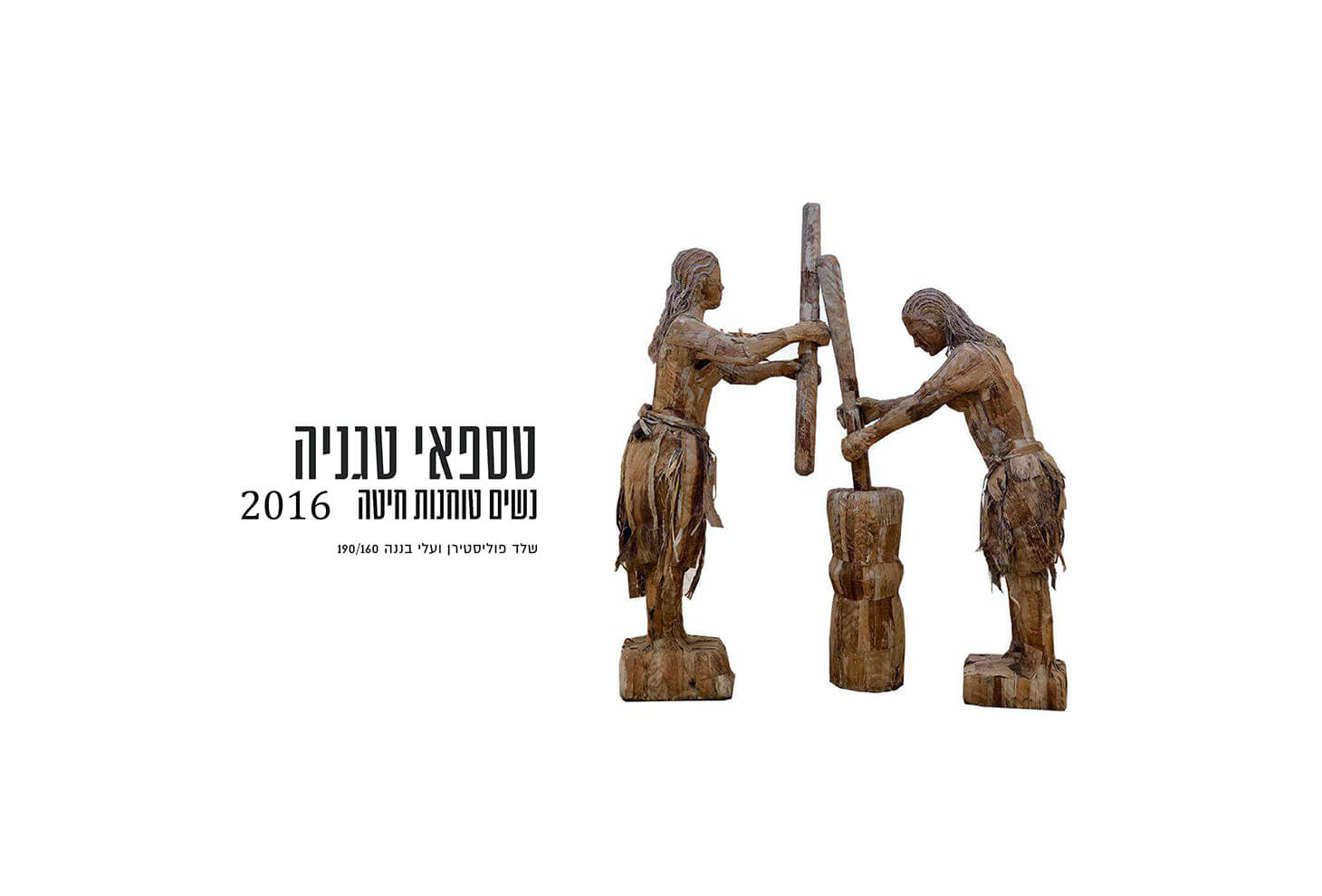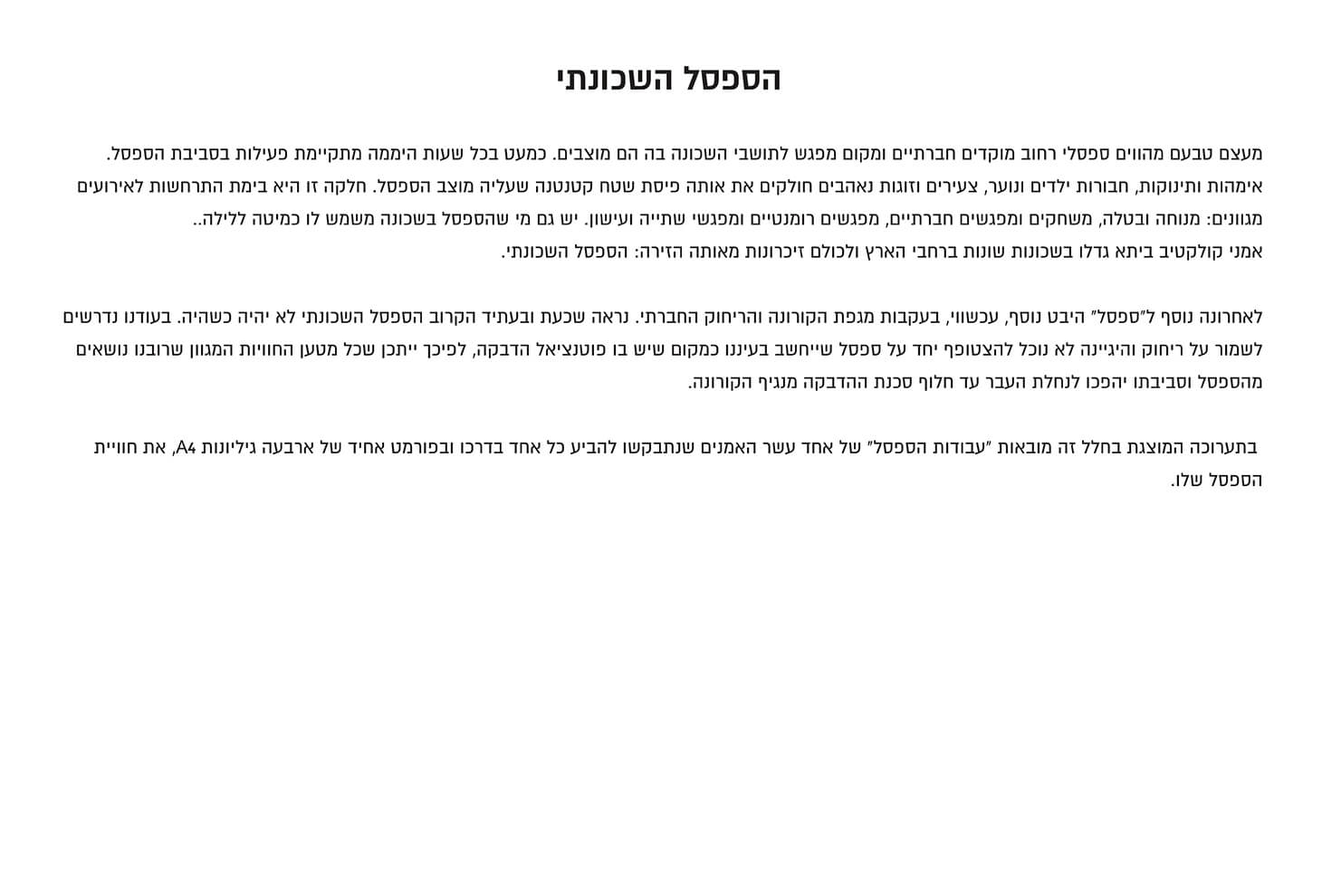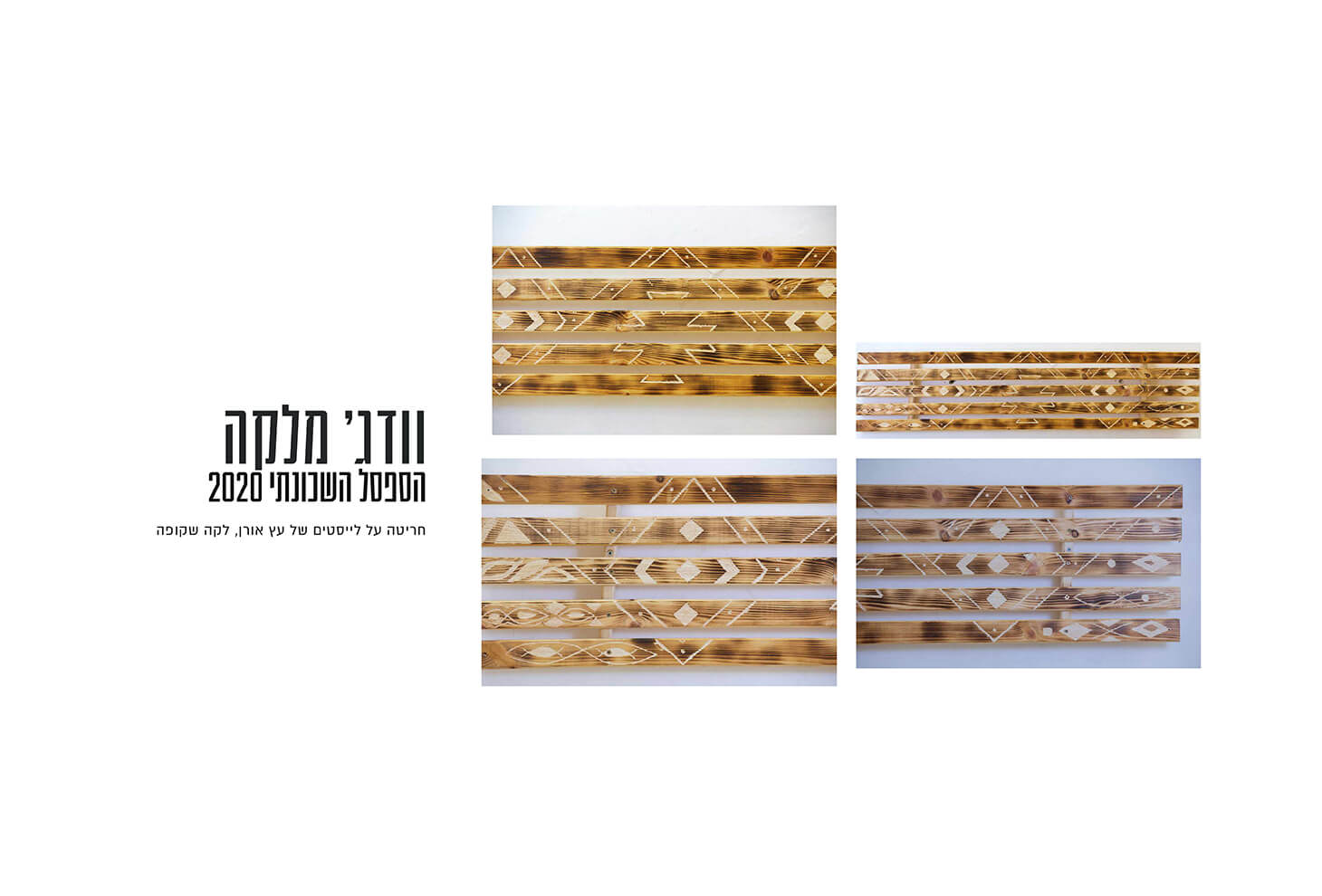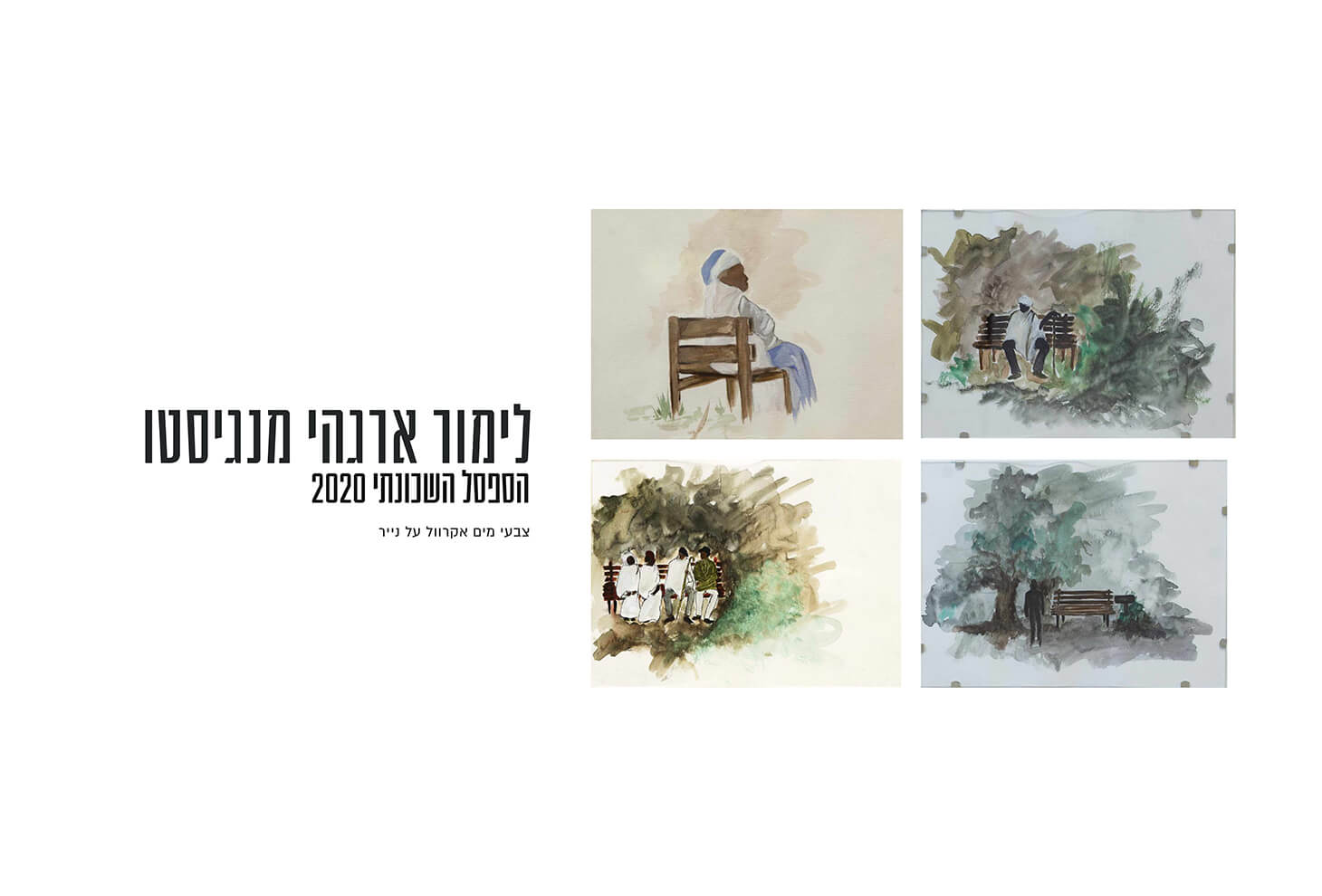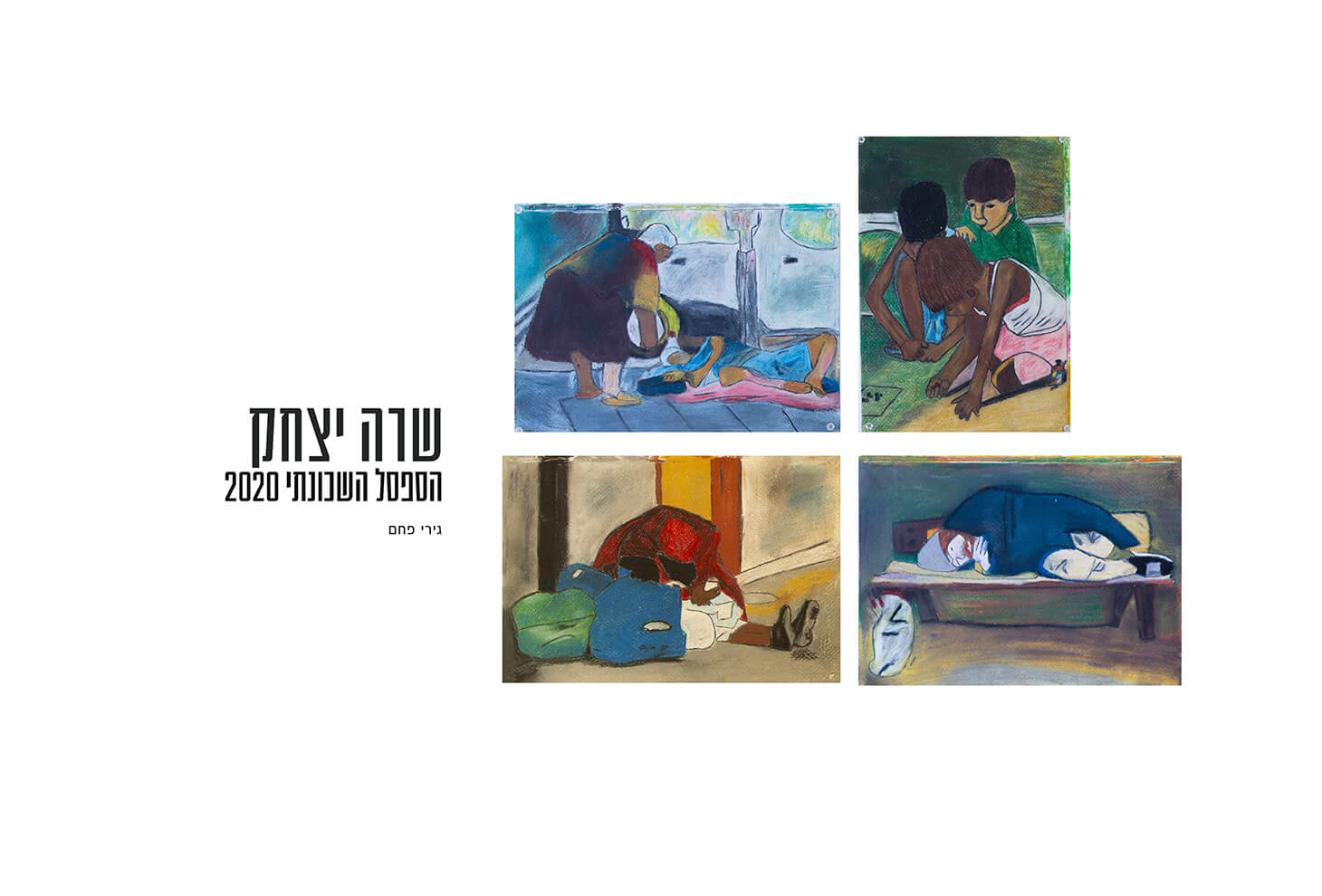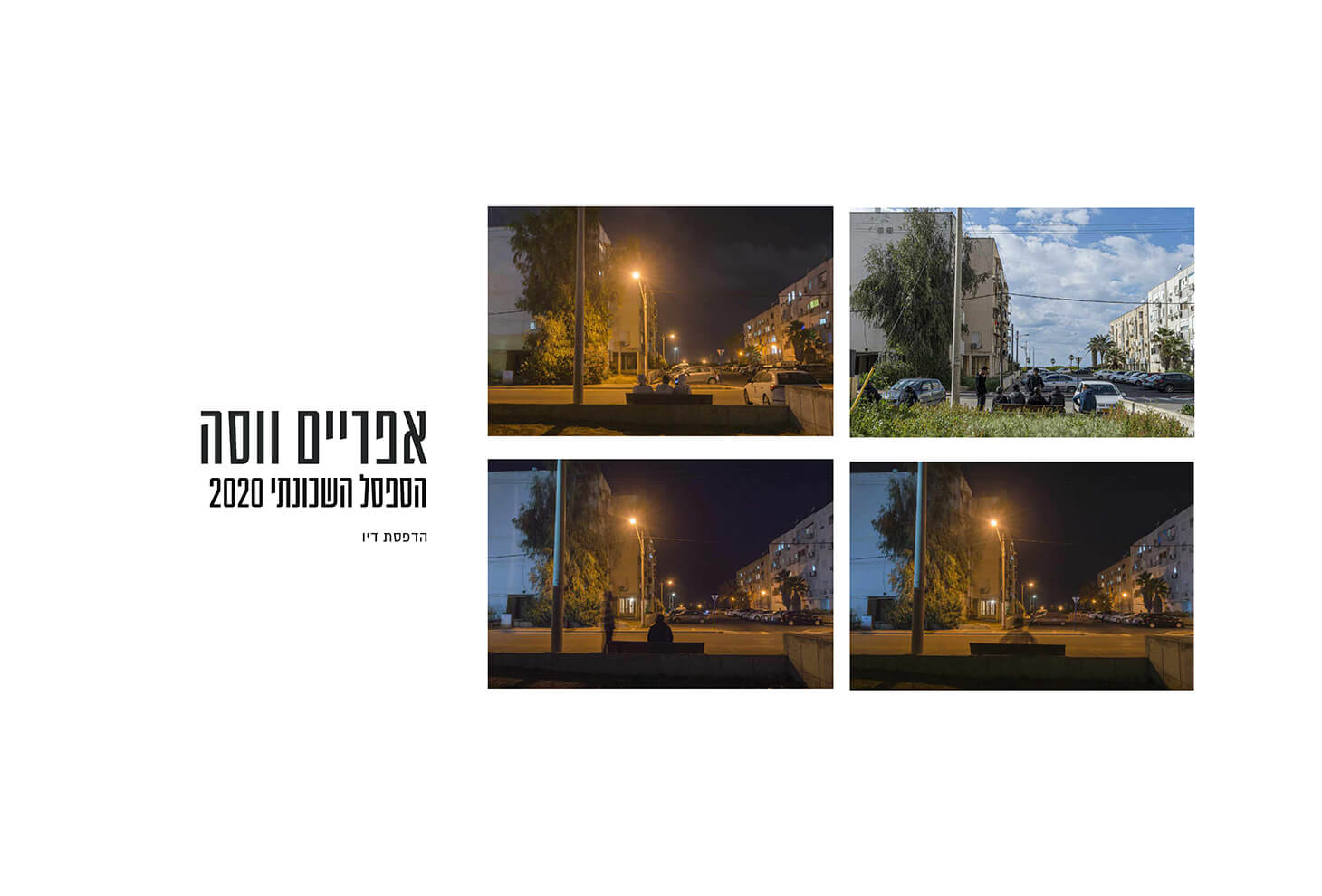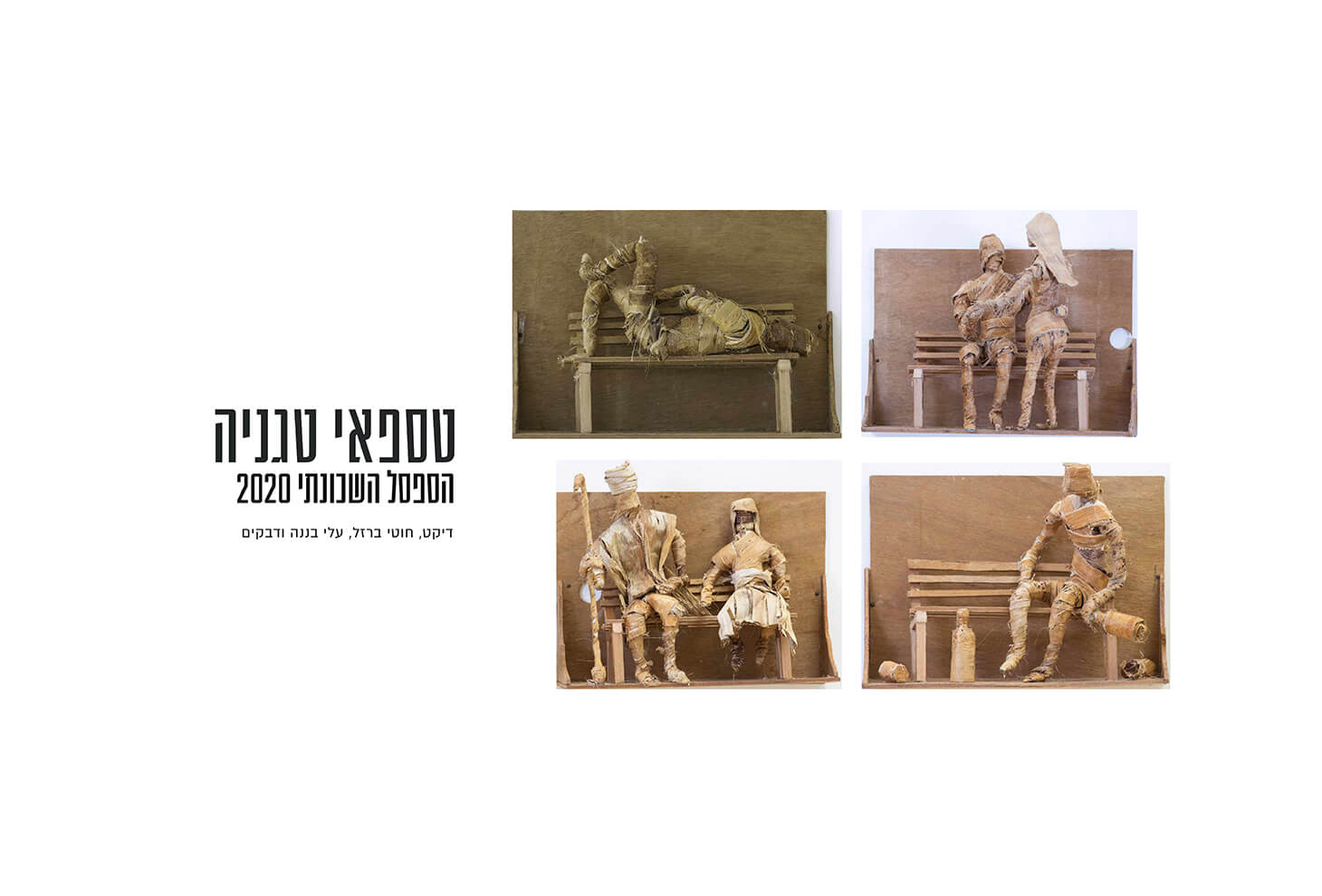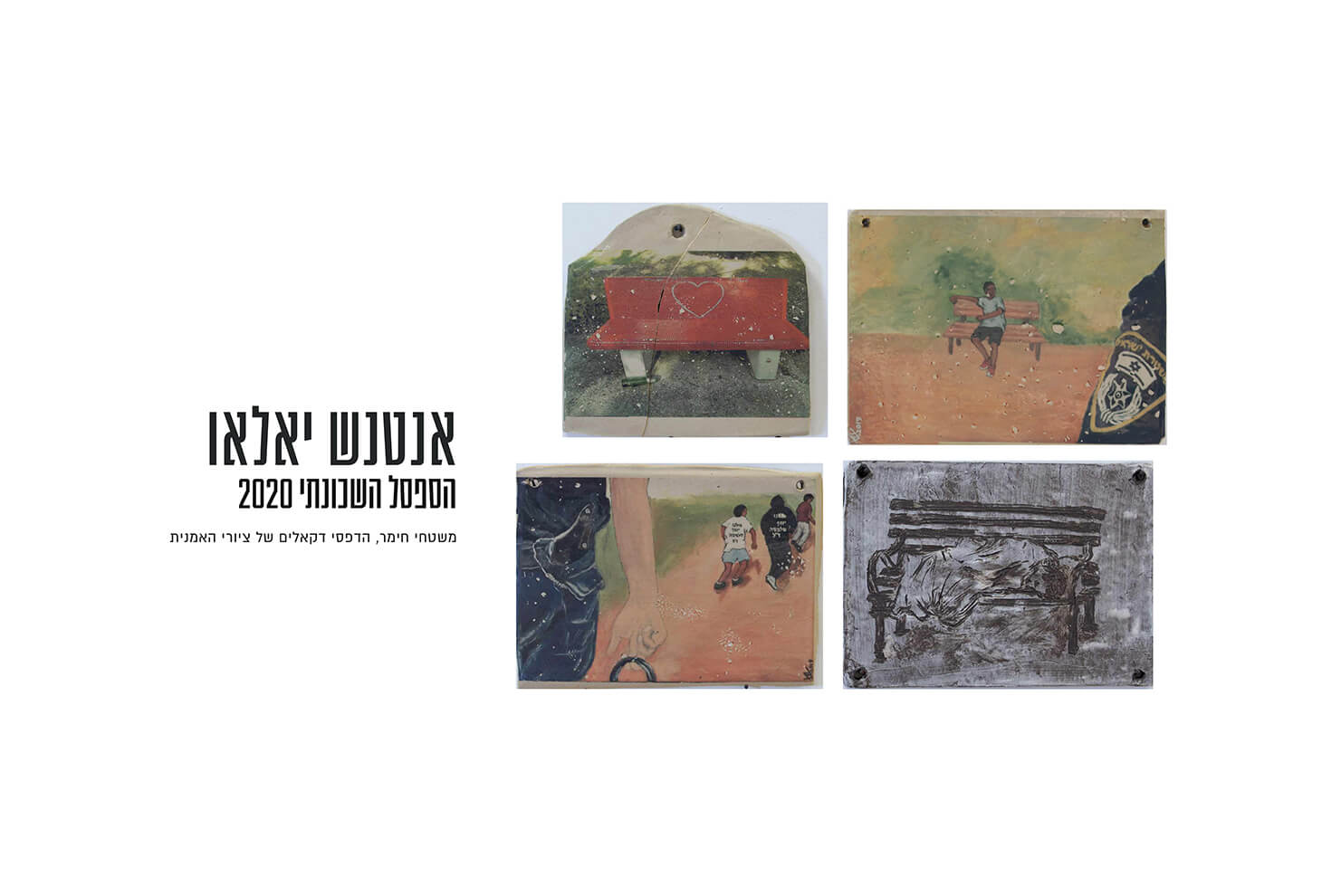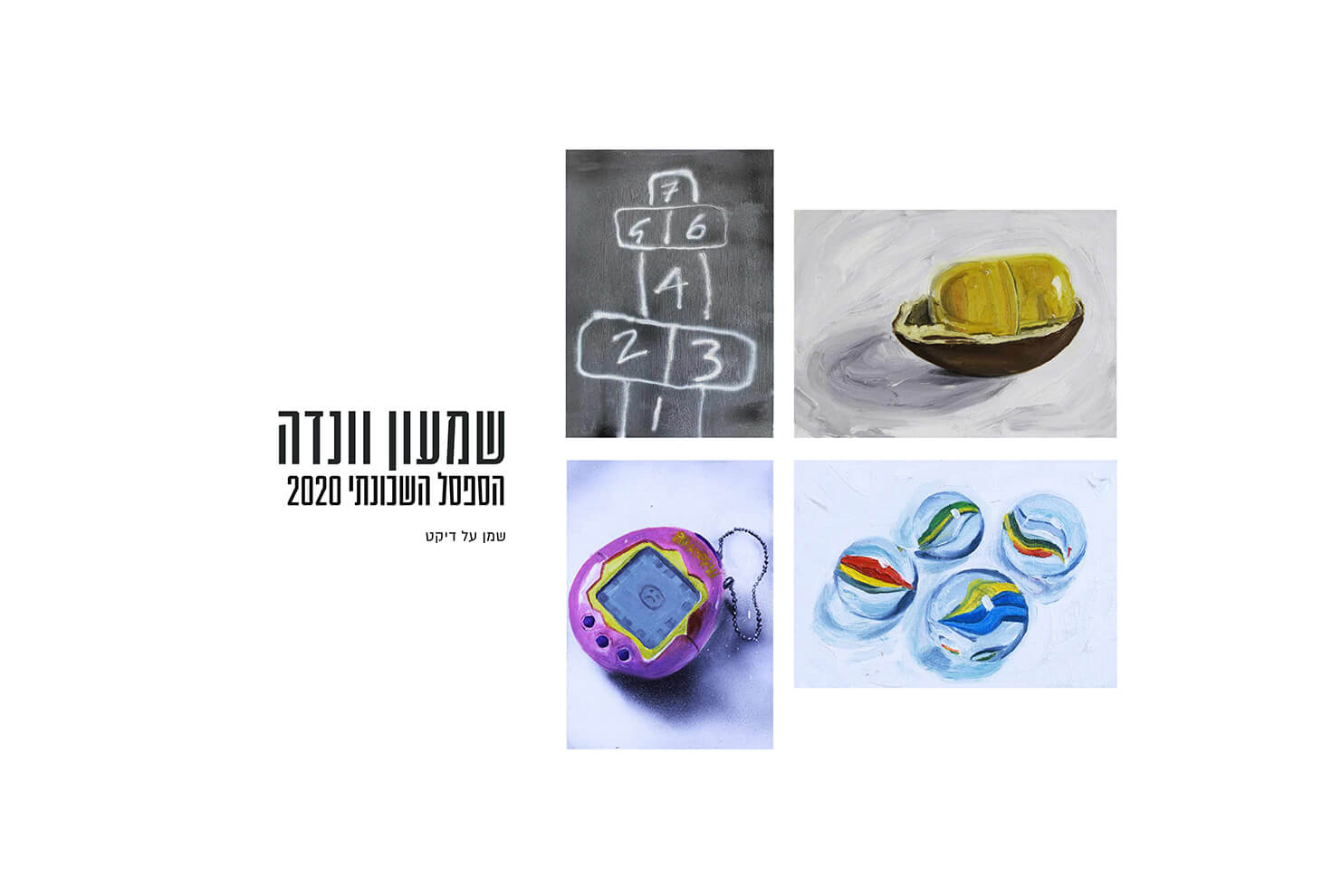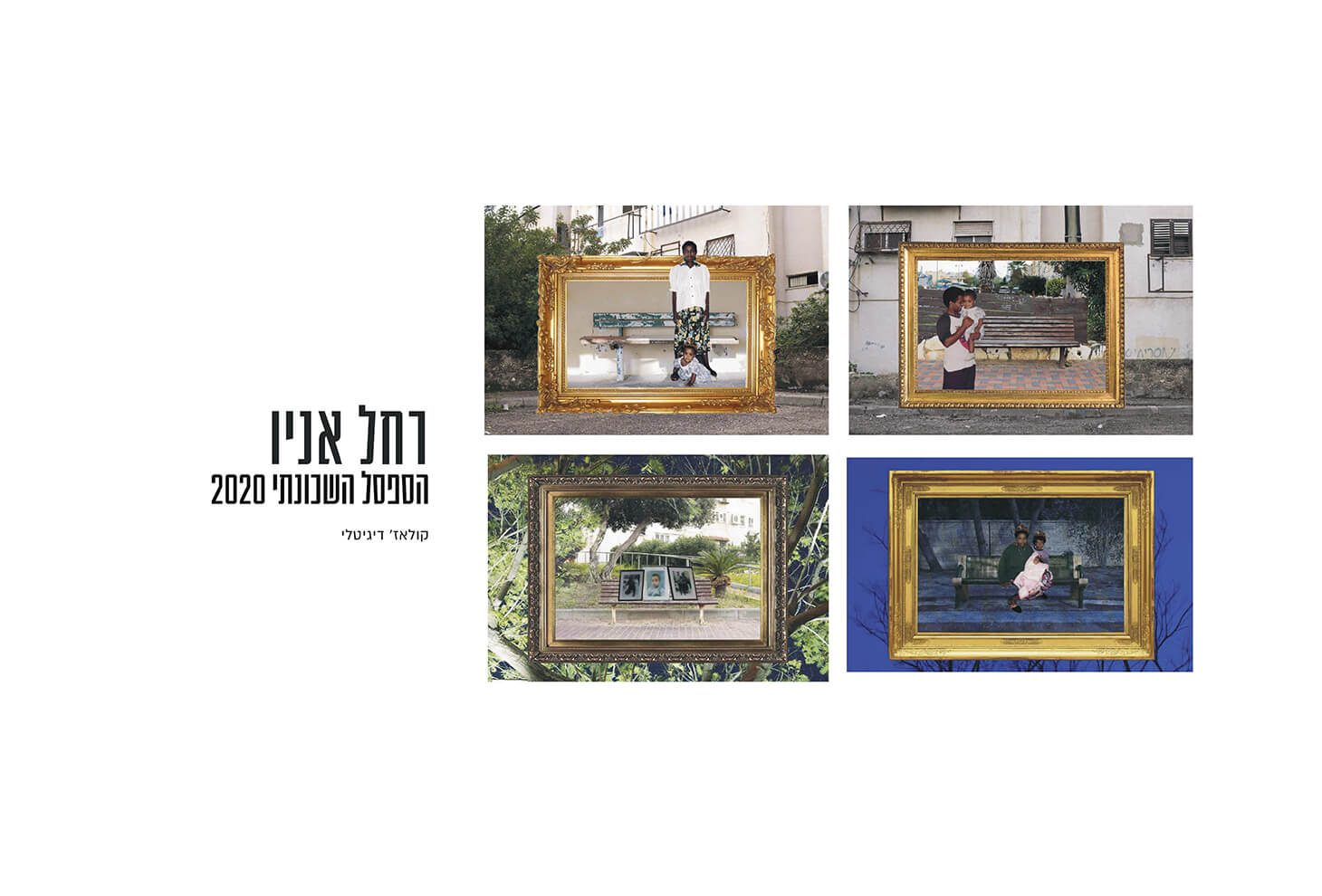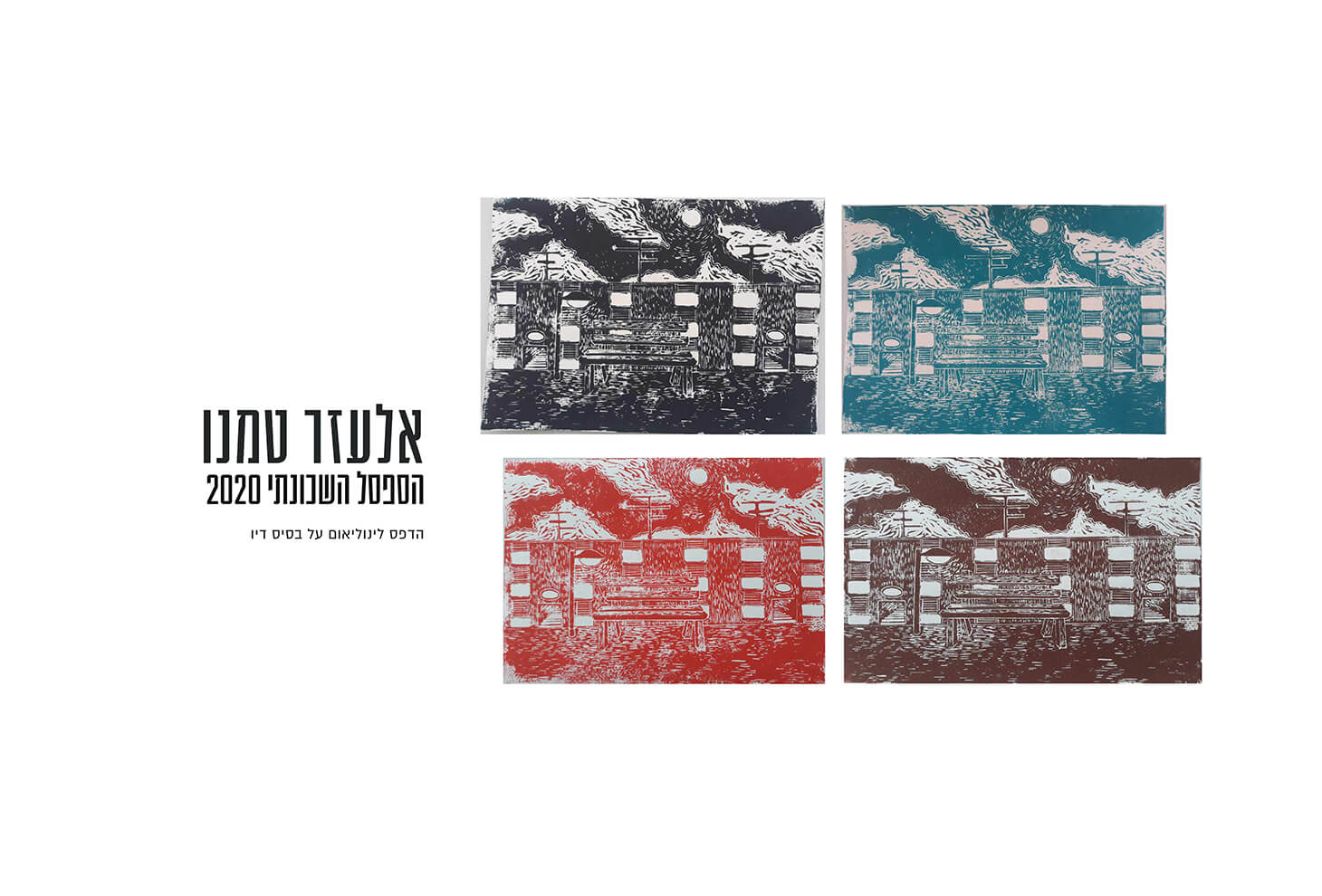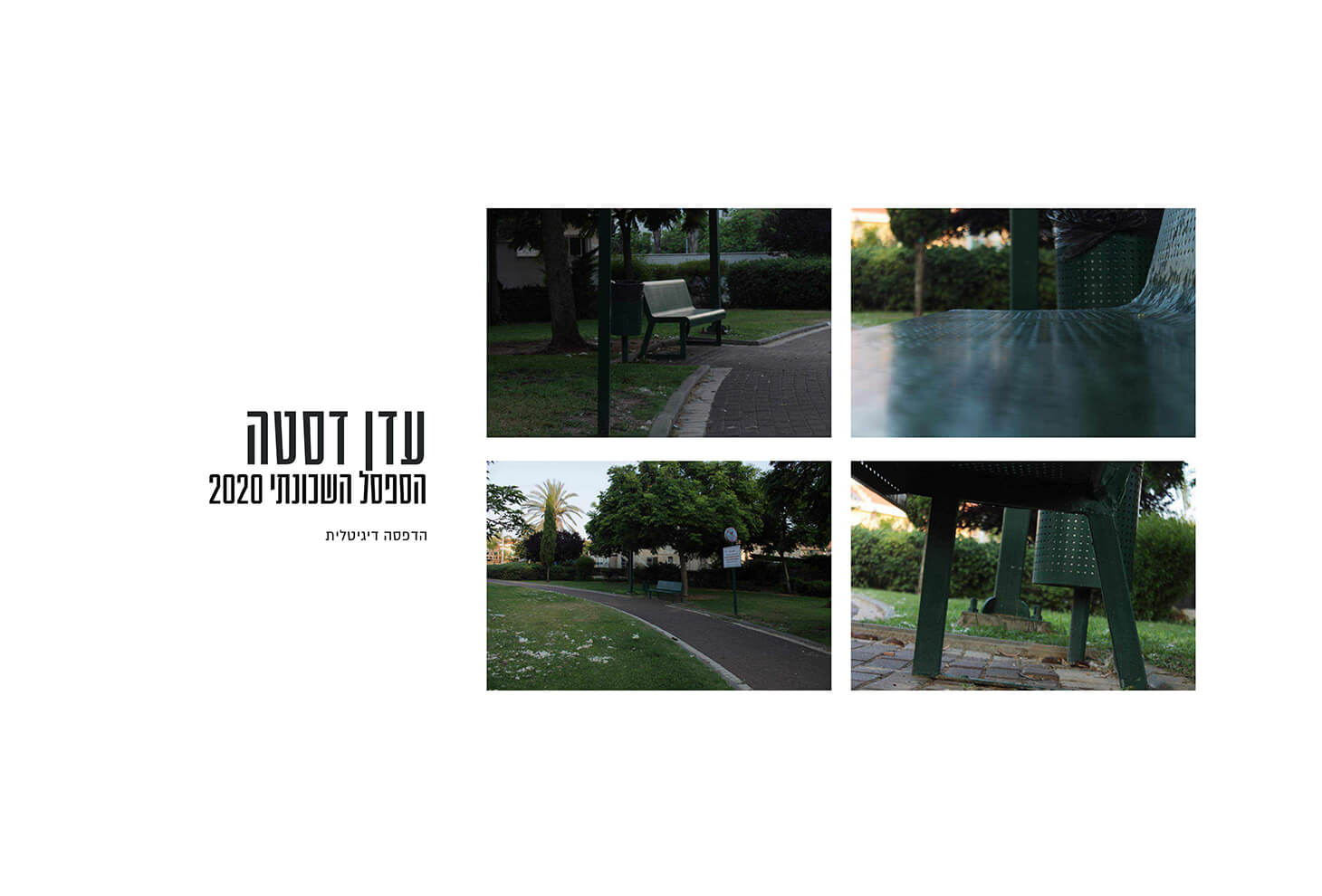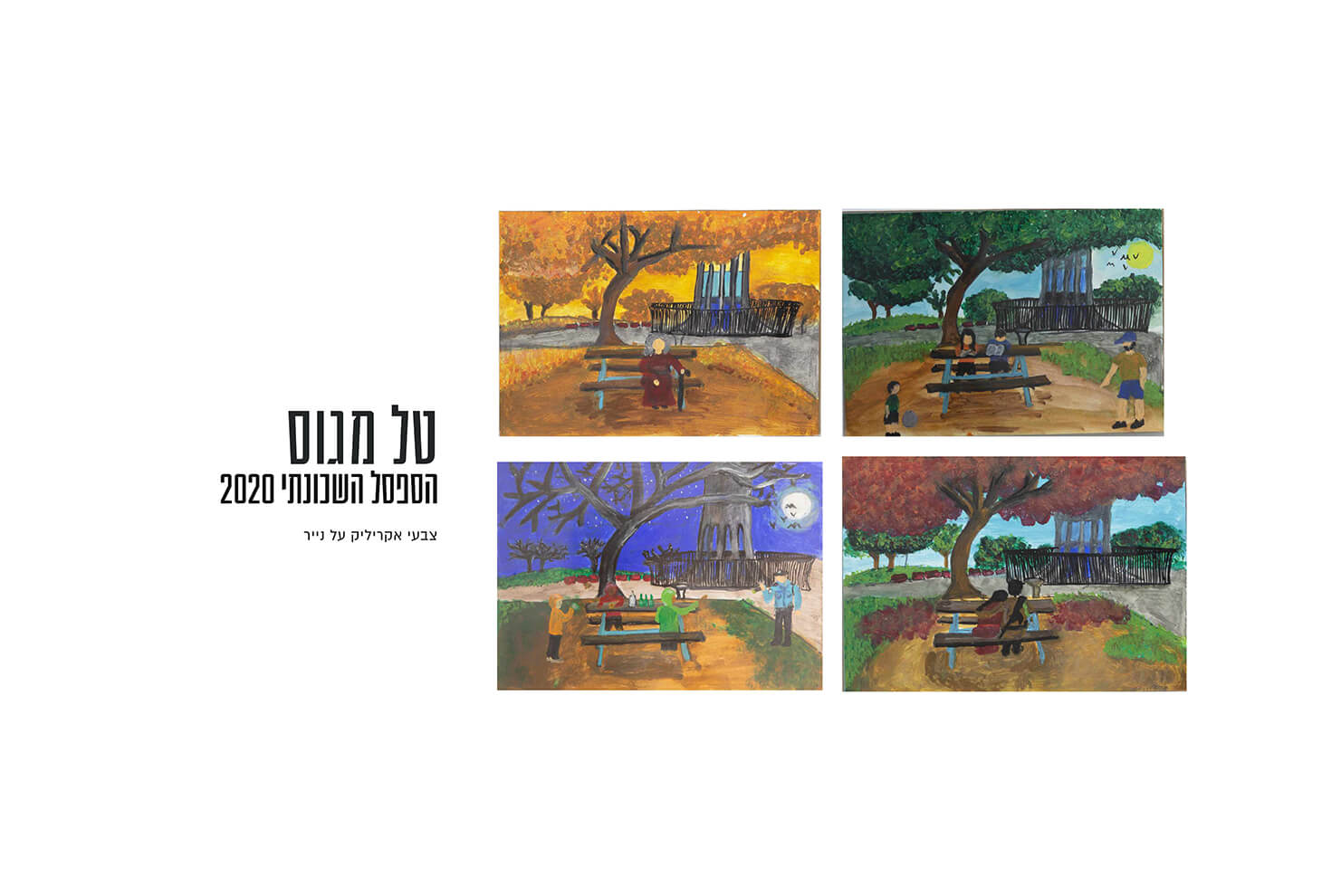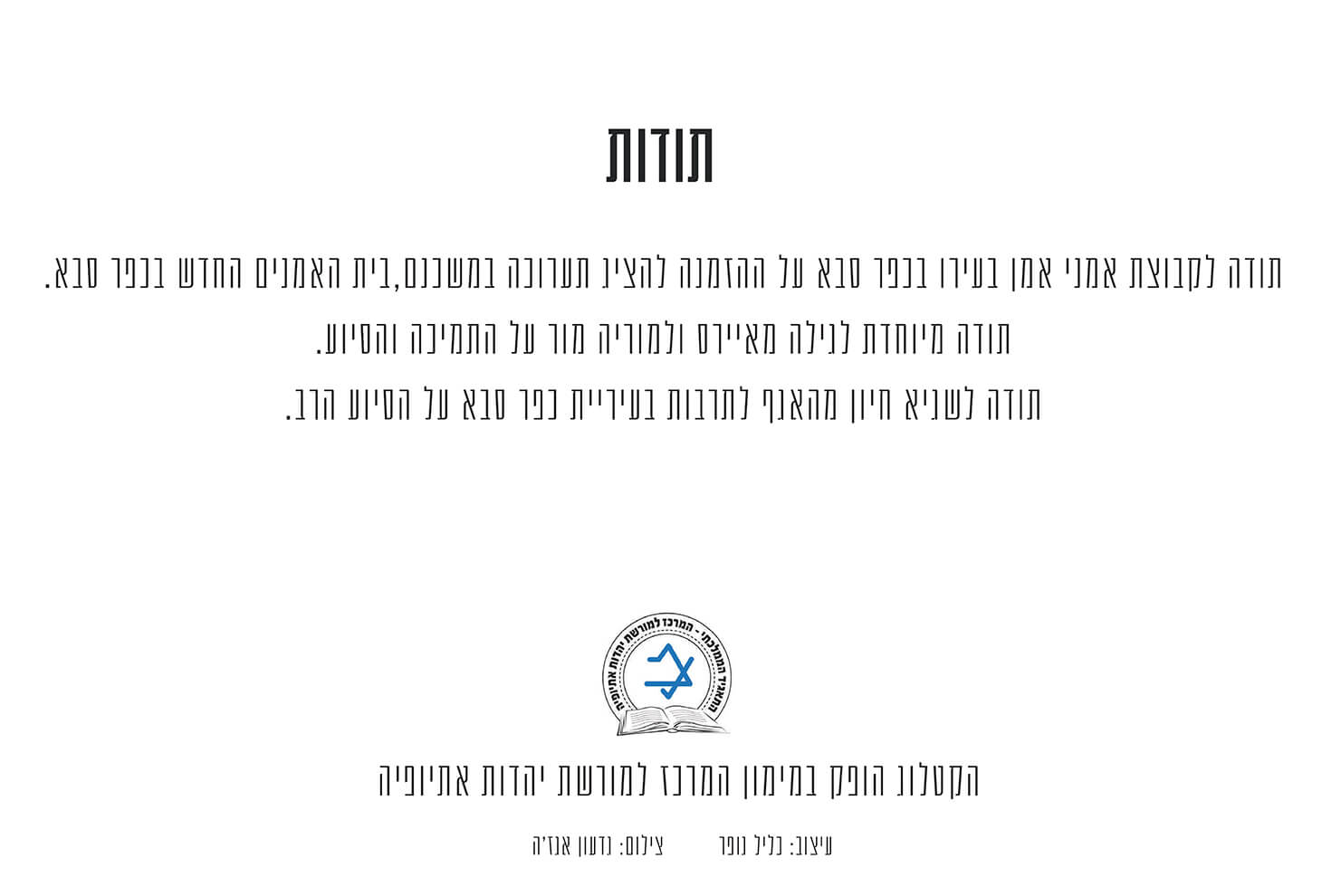ADIS ZAMEN አዲስ ሰዓት
Launch date:
2021-03-18 00:00
Treaדurer:
Carmel Goffer
Selected exhibition
About the exhibition
ADIS ZAMEN አዲስ ሰዓት (The New Time)
Opening of this exhibition was delayed due to the COVID-19 pandemic, which arrived in Israel in the winter and has since influenced every aspect of our lives. The pandemic drew the public’s attention away from the struggle of people of Ethiopian descent against the over-policing, discrimination, and racism that many of its members experience.
In 2019, two young men who were members of the community were killed by police fire. Yehuda Biadga was killed in Bat Yam and Solomon Teka was killed on June 30 in Kiryat Yam. The officer who shot Yehuda Biadga claimed that his life was in danger when Biadga stepped toward him holding a knife; the officer who shot Solomon Teka fired next to his legs in order to warn him not to throw the rock that was in his hand. He was charged with negligent homicide. These two incidents were not the first in which young members of the community experienced over-policing, with fatal results. The death of Solomon Teka aroused a new wave of protests and rallies throughout the country against over-policing and shooting at young people of Ethiopian descent.
Opening of this exhibition was delayed due to the COVID-19 pandemic, which arrived in Israel in the winter and has since influenced every aspect of our lives. The pandemic drew the public’s attention away from the struggle of people of Ethiopian descent against the over-policing, discrimination, and racism that many of its members experience.
In 2019, two young men who were members of the community were killed by police fire. Yehuda Biadga was killed in Bat Yam and Solomon Teka was killed on June 30 in Kiryat Yam. The officer who shot Yehuda Biadga claimed that his life was in danger when Biadga stepped toward him holding a knife; the officer who shot Solomon Teka fired next to his legs in order to warn him not to throw the rock that was in his hand. He was charged with negligent homicide. These two incidents were not the first in which young members of the community experienced over-policing, with fatal results. The death of Solomon Teka aroused a new wave of protests and rallies throughout the country against over-policing and shooting at young people of Ethiopian descent.
The Addis Time exhibition (“New Time” in Amharic) declares: now is a new time. The artists featured in the exhibition express their intricate inner feelings through their artistic works: how they were strongly shaken last year following the difficult events of the young men’s deaths and the protests that broke out in their wake, on the one hand, and their desire to live normal lives, “to be like everyone else,” while still preserving the community’s heritage and traditions, which are a source of pride to them, on the other hand.
Addis Time is now, when young members of the community can express themselves without embarrassment or fear. The artists are young and modern thinkers, most of whom were born in Israel, and they explain that unlike their parents, they “don’t expect everything to be done for them.” They share that only if they take initiative and act will they be able to change attitudes toward them and remove the existing stigmas, especially regarding teenagers of Ethiopian descent. In their artistic works, they strive to express a new voice that will reflect their perspective from a strong, confident place. They firmly criticize the phenomenon of profiling, which they hope to uproot completely, and they dream of using their appearance in a positive way, in contrast with the way that the Israel Police treats them.
The past decade has seen an emergence of modern art created by Israeli artists of Ethiopian descent, some of whom were born in Eithiopia and many born in Israel. This is the first generation of their community who are working and are active in Israel. Their parents, who immigrated from Ethiopia, were busy acclimating and trying to survive, and had no time to focus on “leisure” activities such as art. Even the traditional crafts that they brought with them were only created rarely for the same reason. This outburst of creativity by artists from the community over the past decade is a formative occurrence, and this exhibition presents an important element of the reality today, which should be brought to the attention of the general public, and specifically the artistic community.
Addis Time is now, when young members of the community can express themselves without embarrassment or fear. The artists are young and modern thinkers, most of whom were born in Israel, and they explain that unlike their parents, they “don’t expect everything to be done for them.” They share that only if they take initiative and act will they be able to change attitudes toward them and remove the existing stigmas, especially regarding teenagers of Ethiopian descent. In their artistic works, they strive to express a new voice that will reflect their perspective from a strong, confident place. They firmly criticize the phenomenon of profiling, which they hope to uproot completely, and they dream of using their appearance in a positive way, in contrast with the way that the Israel Police treats them.
The past decade has seen an emergence of modern art created by Israeli artists of Ethiopian descent, some of whom were born in Eithiopia and many born in Israel. This is the first generation of their community who are working and are active in Israel. Their parents, who immigrated from Ethiopia, were busy acclimating and trying to survive, and had no time to focus on “leisure” activities such as art. Even the traditional crafts that they brought with them were only created rarely for the same reason. This outburst of creativity by artists from the community over the past decade is a formative occurrence, and this exhibition presents an important element of the reality today, which should be brought to the attention of the general public, and specifically the artistic community.
About the artist
Group ExhibitionElazar Tamno, Antnash Yalao, Wodj Meleka, Tal Magos, Tasfai Tagnia, Limor Argahi Mengisto, Eden Deste, Rachel Anyo, Shimon Wanda, Sara Yitzchak

